#narratively compelling and informing of their character now? yes. interesting to look back on? yes
Explore tagged Tumblr posts
Text
someone stop me from arguing with dumbasses who still think the 2015 draft class are besties and height of friendship in this league lmfao
#PLEASE.......#fandom ppl getting into hockey but not being able to let go of the past (decade ago) are so funny like listen#narratively compelling and informing of their character now? yes. interesting to look back on? yes#are they still best friends and keep in touch all the time and having the biggest impact on each others lives? literally no. KLFJKLDSJ#not to be simple abt it but lke did any of them go to each others big ass weddings... uh no i think thats p much telling u enough !#its so ... klfsjkfsd...#are auston and connor besties bc they were seen hanging out for a paid ad over the summer#or having dinner w their shared agent... im sorry im gonna go with no ! FKSLDJFKL#anyway none of this negates the point i was actually trying to argue in the first place anyway but fuck it sounds like 16 yrr olds talking#every time they bring the power of friendship into shit#like u actually think other canadian markets dont resent the leafs and it doesnt leak into their lil jokes? ur fucking stupid#whats 'is there anything better than beating the leafs' all abt then. DUMBASS#god give me strength to never interact w teenagers on the internet#sorrry ranting on my own private diary blog
3 notes
·
View notes
Note
i just hate when players do this and people call them “warriors” i know you wanna play in the playoffs to help your team but YOUR FINGERS ARE LITERALLY BROKEN MY GUY THEY COULD NEVER GROW BACK TOGETHER THE RIGHT WAY im crying
my poor cringefail wifes i love them all so much i hope they all take the rest they need
GOD I hope they get rest too :((
breaking soooo much character right now to give my fullest take, and it’s that we can hold multiple ideas in our minds and i don’t think they conflict
playing through injuries is terrible.
They are whole adult human beings and professional athletes who have resources to keep them informed about long term consequences, and they still get to make those choices even if we hate the choices they make. Even if those choices drastically reduce the length of their career. Even if those choices end with long term heath complications.
i might lose some people on this one but i don’t care!! it’s what I believe: being disabled or chronically ill/injured/in pain is not a death sentence. it is not the worst thing in the world. people live full and happy lives whilst also being disabled. can it suck for the person living through it? yes. absolutely. but to me, people are not and never will be defined by how able-bodied they are!!!
All of this is true (to me) and also we can still condemn the circumstances that cause them to make these choices. (culture of not wanting to be seen as soft, the normalisation/valorisation of playing through injury, all the other [gestures wildly] forces at play that set athletes up to make these decisions) Like i’m sorry to get political but choices do not exist in vacuums. sports does not exist separated from hegemonic models of masculinity or capitalism. there are so so so many reasons a player might choose to harm themselves by playing through injury and not all of them are noble or valid, some of them are stupid and informed by bullshit!!! and we should be mad at that bullshit!! because it’s awful!!!!
these are their jobs, and i’m talking in the sense that they are performing labour and i think labour laws and workplace health and safety must apply here too. I think we have to start talking about these things in terms of workers rights, in amongst all of the compassion we have for them as players. there’s the pressure to perform due to contract status and salary bonus milestones; there’s team doctors having direct conflicts of interest, a monetary and cultural incentive to look the other way when clearing people to play; there’s the plain fact of the best possible safety equipment (cages/bowls, neck guards, cut resistant protective gear) not being mandatory; the blatant denial of CTE coming from the league itself. there’s a lot. and it’s a workers rights issue, not just a moral one. someone will play through xyz because of the culture, because of the pressure, and they will die from it.
EVEN STILL. there is beauty and narrative resonance and something compelling about it all, and I don’t want to deny that. as someone looking from the outside in, sports captures people’s hearts because of these narratives. sacrifice and teamwork and triumph — we have an appetite for these things. I am never going to sit here and deny that I feel compelled by it (which is simultaneous to the anger, the fear, the deep deep well of “i’m sorry you have feel you have to do this”) This appetite I/we as a society have for pain — unpacking it and addressing it is a whole other conversation and I am not qualified to have it. I’m just going to acknowledge it exists because I think pretending it doesn’t would be dishonest of me.
we are allowed to feel fucked up about all of this. call it parasocial, call it entitled, call it inappropriate, i don’t know!! we are people and knowing other people are in pain tends to fuck us up — and as much as I try to keep a healthy distance from these celebrities, as much as I remind myself they’re strangers, I care when they’re hurt because I’m human.
anyway. YES OUR POOR CRINGEFAIL WIVES 😭🤲
#i attempt to have a nuanced take#i say it’s my fullest take but all of my tales are evolving constantly with new information and over time👍#nothing is final and we are all learning#asks#anon#hockey culture#injury talk#<- new tag maybe? i don’t anticipate using it often but it would be nice to have somewhere to file it#edit: you know what fuck the cut !!!
116 notes
·
View notes
Text
A lot of people are really upset about this Marvel/RDJ news. And I know a lot of people are just upset with the MCU in general right now.
And like, I wouldn't say that I'm upset with it, but I had definitely gotten to a place where I just didn't care about new MCU. I was in it for the OG6 and once the core of that was gone, I just didn't care anymore.
But this news actually makes me cautiously optimistic, so I'll go ahead and lay out why. This is just me, putting my thoughts out there as someone who once studied screenwriting and very much wanted to go into it. So this is where I think they are potentially going with this, because to me, this is both narratively logical (based on this latest news and rumors) and narratively compelling.
Obviously I don't have any actual inside knowledge and I'm just building this off of scraps of information I've picked up on the internet over the past day/few months. And everything I say here could end up being completely wrong. Or not. Who knows.
Caveat, I feel like I'm very rarely right about these things, but I just can't see any other reason for this casting choice, so here you go:
1. Okay, so the people saying he won't/shouldn't ever take off the mask, sorry that's just not happening. Disney isn't paying rdj-money for RDJ to wear a mask the whole movie*. This idea is absurd. If they were going to do this, they could have literally any actor playing the body and just have RDJ do voiceover work for much cheaper. Not that they would do that anyway, because again, this idea is just not how Hollywood works. It's not happening. The mask is coming off.
*There's a small chance it doesn't come off in the first movie if RDJ ends up being in Secret Wars. I don't actually know much about the plot of Secret Wars, but my very vague understanding is this is what collapsed 616 and 1610, so this is thought to be working as a soft reboot of the MCU. I don't think any of this conflicts with my thoughts, but look, again I have no inside knowledge.
2. The people saying this is going to be a new character not in any way related to Tony Stark are wrong (or in the case of Marvel and Kevin Feige, playing loose with the truth to mislead the audience). We're not talking about Gemma Chan or Alfre Woodard or Laura Haddock being cast in two roles, where one of these roles was so minor it could have been played by anyone. We're talking about RDJ/Iron Man, the cornerstone of the MCU. Yes, I know they said he's playing Victor von Doom - not just Doom. I know that. And yes, RDJ is a great actor, but there is literally zero reason to cast him if it doesn't tie back Tony. Again, Disney isn't paying rdj-money for this to not relate in some way to the most iconic and beloved character of the MCU. If it was just a Victor von Doom casting, then yes, this would be a ridiculous and stupid, and *stupidly expensive* casting choice. It's not.
So what do I think is happening? I think Marvel are *technically* telling the truth about the casting, but they are holding back a lot.
The only way this particular casting makes sense is if it has weight on the narrative, meaning of it relates back to Tony in some way.
Now there is apparently some universe where Doom body swaps with that universe's Tony. There's also a (616?) plot where Doom animates Tony's dead body <- I don't think they'll go this route because this is pretty bleak. Also, while the MCU draws inspiration from the comics, it's not beholden to them.
If they go this route, then technically they didn't lie when they said they cast RDJ as Victor von Doom, since it will be von Doom's brain in Tony's body. But they're also not telling the complete truth.
Why?
Because the thing that makes this casting choice interesting from a narrative standpoint is having the heroes (like, say Peter who's supposedly playing a large part in leading the Avengers moving forward) that loved and respected** Tony, having to fight someone who looks like/is in some way Tony Stark.
So I think that this is von Doom in Tony Stark's body from another universe. And I think that either Doomsday or Secret Wars ends with that universe's Tony back in his own body, and the universes collapse into one, and honestly I'm not really sure where they take Tony's story from there.
This also leaves room for an actual future Doom casting that's a different actor. Because I have no doubt that Doom has a very big role to play.
**Potential unverified rumors/leaks, do not continue reading of you don't want to know.
It's long been rumoured that Chris Evans has already signed on to play Steve Rogers in Secret Wars. And look, I'm obviously both a Steve fan and a Tony fan, so you can call me biased, but I don't think I am. I think a lot of MCU fans would agree that Steve and Tony were the heart of the Avengers and the MCU, and that losing both of them hurt the franchise.
I can absolutely see Marvel setting up a showdown between Steve and a villain that looks just like Tony. I can't imagine how that would fuck with Steve, having to, in a way, relive something he probably deeply regrets.
This is what I think is potentially really narratively interesting and compelling with this casting choice.
But hey, I might be completely wrong about all of this, and that casting rumor could be complete bullshit. 🤷♀️
#marvel#mcu#mcu spoilers#tony stark#victor von doom#[redacted]#and hey maybe i just want to be optimistic and live in a world where i get to be excited about these stories again
18 notes
·
View notes
Text
Lang Qianqiu deserves more love goddammit: a post, unfortunately
This brought to you by the wonderful @veliseraptor & @/yuer on Twitter but also mostly out of spite and the fact that it’s preventing me from writing a very dumb poke-the-bear post abt the entire weird social media culture around The Minors
As always ✨SPOILERS!! SPOILERS EVERYWHERE✨
So first off: when I hit the scene where lqq confronts xl and screams “I will never be like you” I sat up in bed, did a little shimmy of delight, and hissed “fuck yes” at like 2 AM so. Now you have a preview of wtf this train wreck will be
1 ) lqq is a good character
We don’t get a ton of time with lqq because tgcf is 87 side characters running across stage with The Most Interesting Concept constantly one-upping each other before vanishing. But what we do get is, I think, enough to make a pretty compelling story: Lang Qianqiu is a kind and generous prince who is also the sole survivor of the bloody massacre of his entire family, committed by the people dearest to him (both in his belief that Gusohi Fangxin did it and in the reality of An Le’s involvement), who goes on to peacefully lead his fractious nation into a peaceful reign before he ascends as a powerful enough (aka beloved and worshipped enough) god to be ranked among the top heavenly generals. That’s like. Pretty fucking classic protagonist vibes right there.
And, as usual with mxtx’s characters, we get a lot more than this lovely little backstory. In his interactions in canon, lqq is capable of great grief and anger; he is willing to sacrifice himself if it means avenging his murdered family; and he simultaneously holds both great hatred and great respect for his old teacher. And, of course, he winds up raising and taking care of his enemy’s son which shows a remarkable depth of compassion and emotional messiness that I find terribly compelling. He struggles with a simplistic view of justice that is supported by lies told to “protect” him and that is uprooted by the truth and forces him to try to make sense of the world without the guardrails that others installed around him (looking at you mister fangxin sir).
Also I’m stealing my own tweets bc I’m Right but:
*pulls up single barstool to lqq is a good character table* I think it’s interesting & Says Things abt the continued relationship btwn lqq & xl that lqq *didn’t* recognize xl, implying that he left fangxin’s mask in place even when he went to kill him
Like here is the man who killed his family & best friend, who left him abandoned in bloodshed on his 17th bday—& here is also the man who saved his life, who taught him, who lqq looked up to & wanted to be like
Even when lqq *does* recognize xl, he still has so much respect for him paired with that hatred that it’s honestly rlly tragic? Like man. There’s so much grief in lqq’s repeated demands for a duel & insisting it’s fine if xl kills him as long as he doesn’t hold back
*pats lqq pompom* this bb is so sad. And so much more like his teacher than either of them seem to realize or necessarily want
Despite being a pretty minor character, lqq gets a lot of complexity and nuance! Look at this child trying to be grown up while desperately turning to his old master for guidance and “the truth”! Look at him! Be sad!!
2 ) lqq is an excellent parallel to xl
Okay stealing my own tweet again don’t look at me I yell the same shit everywhere
Xl didn’t want lqq to become like him (self-sacrificing, vengeful, alone) but lqq not only became alone, chasing vengeance, & willing to sacrifice himself for revenge—he also became kind, open-minded, & remorseful!! & he still clearly respects xl @ novel end 🙃🙃
We all know hc’s “they’re not very alike at all” and yeah sure baby go support your man but narratively, there’s a lot of importance given to cycles, parallels, and foils in mxtx’s writing and most explicitly (compared to mdzs, haven’t read svss) in tgcf. For example, *gestures at beefleaf, gestures at Xianle Trio vs Wuyogn Crew, gestures at Xie Lian & Jun Wu’s whole uh. Deal.* And while I’d argue xl and lqq are part of a triumvirate rather than a pair, we’re not including mister three-face in this conversation so just looking at xl and lqq:
Both adored and sheltered crown princes
Both taught by a guoshi who was seeking to prevent the repetition of their own tragedies and in their efforts, lied/omitted information and failed to protect their charge from tragedy
Both were betrayed* by their closest friends
Both are the last living members of their respective royal families
Both caught the interest of supernatural beings from a young age
Etc etc I’m getting v bored and distracted writing this so moving on
Most importantly to me, we have their betrayal by a very close and adored mentor and how they react. The confrontation I mention at the start of this shitshow is really imo one of the most important scenes in the novel because it a) illustrates the differences in xl and Jun Wu and b) sort of gives you a preview of how xl ultimately wins
So a) Jun Wu and Xie Lian both take a talented, marked-for ascension young prince under their wing. Jun Wu sees himself in the boy and obsesses over shaping him into Jun Wu’s own image in the belief that this will make him the perfect heir. Jun Wu pushes his chosen heir into situations where Xie Lian is repeatedly harmed in an effort to show that the common people are fickle and cruel and don’t deserve his compassion and care.
Meanwhile, Xie Lian is reluctantly roped into mentoring his prince due to his inability to stand aside when he feels he could do something to prevent hurt or injustice befalling another (simultaneously his great strength and great weakness! God I love him). Xie Lian tries to teach his student to believe in and care for the common people and not to sacrifice himself (see: flashback convo re:taking the force of the sword strike into his own body).
When Xie Lian refuses to bend in the shape Jun Wu demands, Jun Wu bashes his head into the wall. When Lang Qianqiu cries “I will never be like you!”, Xie Lian laughs and says “Good!”.
B) this of course feeds directly into foreshadowing! Like Lang Qianqiu’s bold words, xl ultimately refuses to become like his mentor and remains defiant even when it would stop him from being hurt. Xl beats lqq and says so what if I tricked you, so what if I lied, I still won. Naturally, xl beats Jun Wu not through standard swordplay but by using a trick he learned while forced to busk and wander the earth alone and unlucky for centuries.
…okay so I have fully forgotten what I was actually saying here! Anyway!
Like Xie Lian, Lang Qianqiu spends a time consumed with the need for vengeance, hunting his enemy and rejecting the heavens. And like Xie Lian, he winds up caring for his enemy’s “son” and trying to both comfort him and maintain what’s left of Qi Rong’s life force despite having previously been hellbent on destroying him—bc he sees the impact it has on another person. In the end, he even gives a gift to Xie Lian—his mentor, his role model, and the one who killed his father—that was once given to him as a symbol of unexpected kindness. Sound familiar?
But, importantly, and contradictory to what I have been yelling abt but whatever it’s 12:30 am, Lang Qianqiu is not a direct mirror of Xie Lian but a closing of a vital loop in the story. Lqq is very similar to xl (I will die on this hill!! Only I won’t bc I’m stronger than y’all and will keep swinging these pots and pans) but bc xl tries to do better and keep lqq from suffering the way xl has, lqq is able to have a gentler and more optimistic path forward. He’s proof that even a small act of kindness or even kindness to only one person still matters and has a ripple effect that can’t be seen when you’re in the middle of it—a thread started with xl giving the coral pearl to Lang Ying and closed with Lang Qianqiu returning the pearl to Xie Lian.
So I have no idea if any of this is coherent or compelling but I meant to be asleep two hours ago and the points are:
A) Lang Qianqiu is good actually
B) parallels!!!
C) look ive already started another wip about Lang Qianqiu and Xie Lian and I didn’t want this but no one else wrote it so now I have to so pls just accept this as a warning
*sort of air quotes around this for Xie Lian bc frankly Mu Qing was right & Xie Lian kicked feng xin out BUT on the other hand, it was experienced as a betrayal and we also again have all of Jun Wu’s shit so it evens out
#should I wait and proofread and edit this tomorrow? yes.#am I doing that? no <3#idk what to tag this as#uhhh#tgcf spoilers#lang qianqiu#I don’t think this can reasonably be called meta#since I am unsure if it is even readable#tgcf#long post
144 notes
·
View notes
Text
Why Hordak and all of his brothers are cult victims suffering from Religious Trauma Syndrome
A detailed (and very, very, veeeeryy long) explanation on why I take issue with dismissing Hordak’s trauma as “daddy issues” that is frequently done as a way to hand wave his background and the context for his actions all while attributing said cultic abuse and indoctrination narrative to a character that, though has a tragic, abuse-laden past has never actually been part of a cult. *cough* Catra *cough*
Lets see how deep the rabit hole goes shall we?
First off: The Galactic Horde is based on a suicide cult, with Horde Prime as its leader.
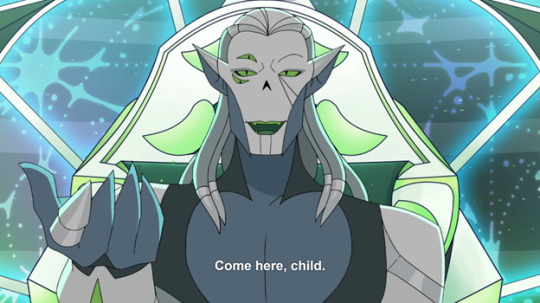
That is irrefutable fact. It has been stated by the show runner and there are plenty of in-show examples of religious speak, religious themes pertaining to Horde Prime and his acolytes and even the interior design of Horde Prime’s ship is that of a grandiose Cathedral.
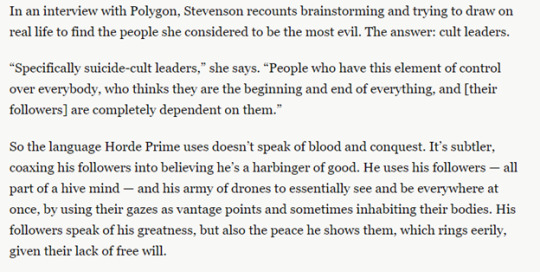
The source of this is an article by Polygon where the show runner breaks down what went into creating Horde Prime. (link in the notes)
Onto The Etherian Horde – though totalitarian in nature, it is not a religious institution – merely a military operation. Though the argument could be made that propaganda is used to instill an anti-princess agenda, no horde members are ever seen spouting doctrine or discrimination against their very own Princess in the ranks – Scorpia. Not only is she not discriminated against, she holds the rank of Force Captain. She also has the respect of her peers.
The only person that seemed to have taken it seriously is Adora, who - due to Shadow Weaver’s personal attention – has been raised with the specific mindset of a self-sacrificing martyr. After learning of the fact that Shadow Weaver has always known about the Heart of Etheria, it is not a huge leap to assume that in her bid for more power, her plan had always been to have Adora unleash the planet’s magic, possibly sacrificing herself in the process. Shadow Weaver had groomed her for this specific purpose. (It’s one of the reasons for which the subject of Adora’s martyrdom hurts Catra so deeply –she had been witness to the manipulation taking place but was powerless to do anything about it for most of her life)
The other cadets are more well-adjusted and don’t seem to care much about the horde’s ideology or goals, not even Catra who has suffered the brunt of Shadow Weaver’s psychological and physical abuse and has been subjected to her manipulation too.
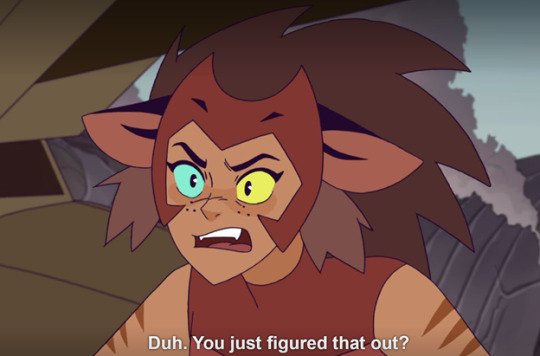


The above exchange proves that even if there had been any indoctrination in The Etherian Horde, it has failed in affecting Catra’s judgment. I am legitimately surprised on how little credit her own fans give her and on how her perceptiveness and intellect is dismissed to have her fit into this “brainwashed victim“ agenda for more “sympathy points”.
With that having been said I’ll start this off with a bit of a definition: Religious Trauma Syndrome is a common experience shared among many who have escaped cults, fundamentalist religious groups, abusive religious settings, or other painful experiences with religion.
The symptoms of Religious Trauma Syndrome are comparable to the symptoms of complex PTSD. The symptoms are as follows.
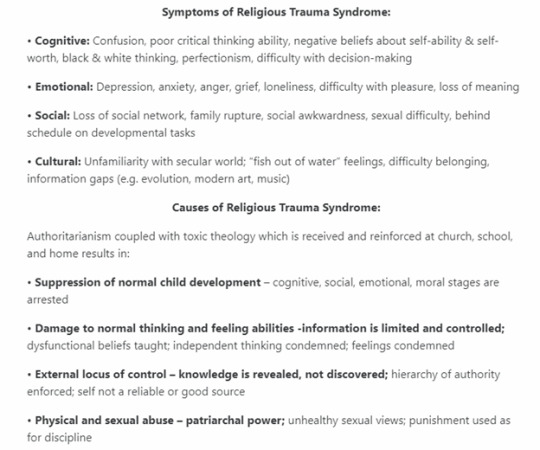
(link in the notes)
I will discuss all of the symptoms and causes by turn and expand upon them.
1) Cognitive: Confusion, poor critical thinking ability, difficulty with decision-making,
negative beliefs about self-ability & self-worth, black & white thinking, perfectionism,
Hordak’s whole misguided crusade on Etheria is an act of confusion. What on green Earth had ever convinced him that it would work in proving his worth to Prime? Hordak had been confused on the reason of his rejection, self-delusional even. Hear me out:
Despite what Hordak himself believes, he wasn’t excommunicated because he was useless, he was abandoned for being born defective, aka for existing as he was created.
His inborn defect, by nature of being an unchangeable fact was not something that he could overcome in order to earn back the acceptance of his Maker. To a certain degree, he was aware of this but had refused to acknowledge it and as such, he has framed it to himself as “his defect makes him worthless”.

By overcoming uselessness and proving his competence in furthering Prime’s goals, he had convinced himself that he would be welcome back into his brother’s flock.

He had convinced himself that by proving his usefulness, it would erase his defect. He had given himself a reason for rejection that, unlike an inborn one, could be overcome - worthlessness. His logic being that Worthless=Defective, if he were useful, he wouldn’t be defective anymore.


He has framed his accidental stranding on Etheria as a trial of faith, not a chance at freedom or bid for power and self-actualization.
In his confused reasoning, he had not realized that by attempting to prove his worth to Horde Prime, he would be in essence, proving that Prime had been mistaken about his deficiency. This was anathema to Horde Prime’s own doctrine – that Prime is all knowing, all powerful and Horde Prime is Never Wrong. His attempts were always destined to fail from the start, the premise was flawed at the core but Hordak’s own wishful thinking prevented him from seeing the fault in his mission.
This is how Hordak sees himself:

This defect => useless => worthless mentality can be observed when he projects onto Catra. I swear, everyone projects onto everyone else in this series.


This is an example of him emulating the only leadership he’s ever known - that of Horde Prime and exerting Prime’s judgment over a supplicant or Prime – In this case Catra (what Prime would have done to him in the same situation). He imitates Prime’s way of speaking and even his facial expression during Prime’s “speeches” (look at position of his ears in this scene and that little dimple damnit!!!)

(yes, *sigh* I did a spacebat ear position diagram)
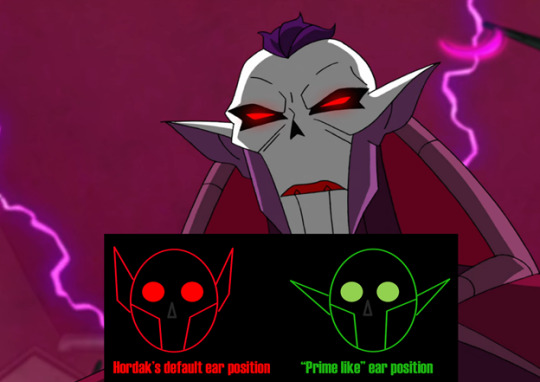
Horde Prime has that ear position even when possessing his little brothers to give his grandiose speeches:
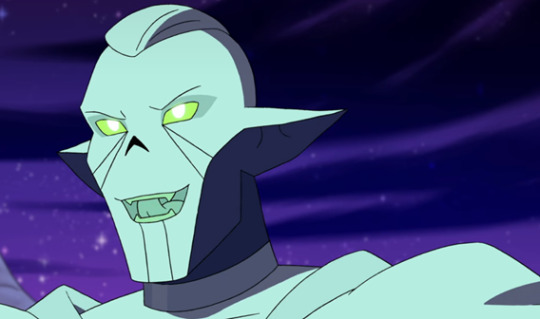
Hordak’s and other little brother’s “default” ear position:

It’s worth adding that perfectionism is not only part of a symptom of his cult trauma but also a tenant of Prime’s doctrine making it a double whammy.
2). Emotional: Depression, anxiety, anger, grief, loneliness, difficulty with pleasure, loss of meaning
As they say, a picture says a thousand words…
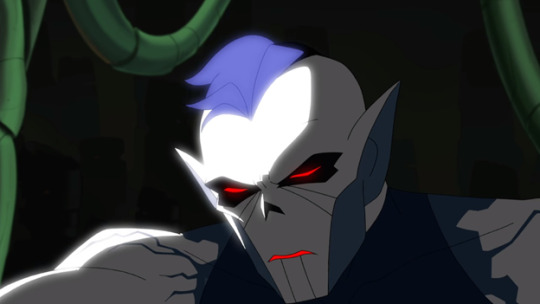
To call Hordak depressed is like calling the ocean mildly humid.
He is alone, on a planet of primitive aliens (from his perspective) surrounded by potential enemies and in an incredibly vulnerable position due to his illness with no clear end to any of it in sight. He feels nothing for this world other than irritation at his inability to leave it. His only meaning and purpose is returning to his congregation, a purpose he is no closer to fulfilling than he was when he had started a few decades ago. The only open displays of emotion he manifests are that of anger, self-loathing., frustration, fear – in the blanket scene before he comes to his senses completely and starts masking the fear with anger… at the blanket… there was nothing else in the room to be angry at… ridiculous spacebat.
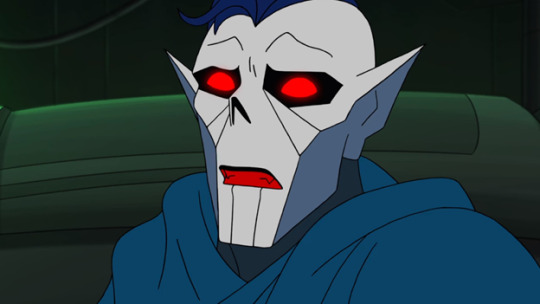
After Catra deceives him about Entrapta, he openly manifests grief and apathy as well.
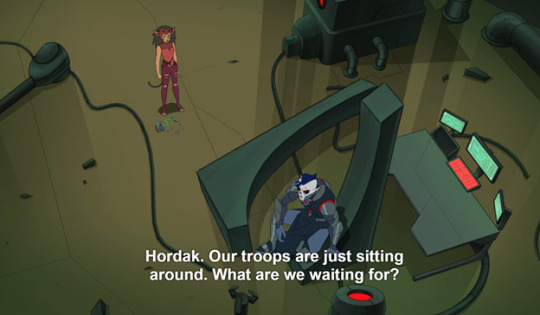
3). Social: Loss of social network, family rupture, social awkwardness, behind schedule on developmental tasks, sexual difficulty (no snu snu for religiously repressed spacebats... yet *wink wink*)
This one is self-explanatory. He is in essence an exile on Etheria, away from all he has ever known. He is the only one of his kind on the planet, even Imp - his attempt at replication is not a proper replacement for the community provided by the Hive mind.
From a social perspective- he is a recluse and is not seen interacting with anyone in anything but a “professional “ manner. The only exception to this is Entrapta’s interaction to him. Due to her indifference to his posturing, she is immune to his attempts at self-isolation. “Get out!” and vague threats of reprimands don’t work on her. Their shared interest in science allows Entrapta to force the interaction on him. (At least in the beginning of their collaboration)
Later, after having become accustomed to Entrapta’s companionship and having that ripped away, he tries to form a connection – at least of commiseration – with Catra:
Even after she did this to him:
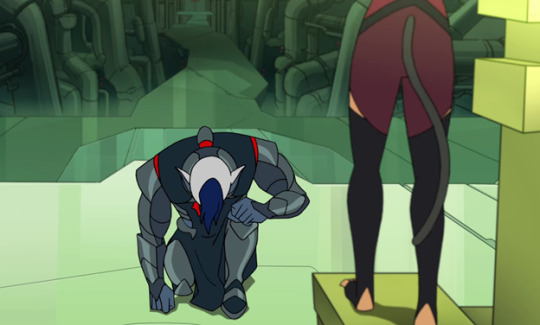
he still tried to form a connection through their shared need to prove their own worth.
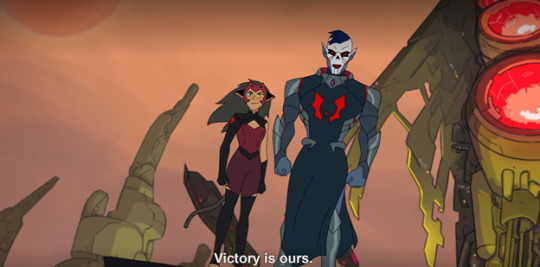
Did you catch that little detail? : “Victory is ours” not “mine”.
4.) Cultural: Unfamiliarity with secular world; “fish out of water” feelings, difficulty belonging, information gaps (e.g. evolution, modern art, music)
…
Do I really need to expand on this one? *Sigh* … he is literally an alien to this world, “fish out of water” would be an understatement.
As we have established, he fits the bill of Religious Trauma Syndrome to a T. He presents all of the symptoms.
Now let’s move onto the causes of it:
1). Suppression of normal child development – cognitive, social, emotional, moral stages are arrested
This one is self-explanatory. The horde clones and by extension Hordak are severely stunted in their psychological development and that is by design. They are deliberately kept from developing an adult mentality so as to never become a threat to Horde Prime or ever be able to break away from his control. Prime keeps them in a child-like dependency on him as a way to exert his power over them. Should they ever develop even a budding sense of self, their indoctrination compels them to submit to correction and erasure ensuring that they never surpass this state of learned helplessness. Horde Prime encourages this self-flagellating behavior, deeming it a mercy, even a favor to be granted – to suffer in His Name.
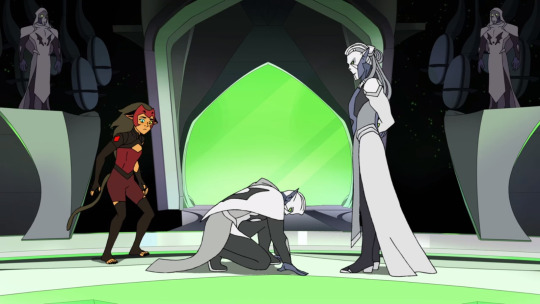
Hordak shows almost no emotional coping mechanisms and manifests child-like tantrums of frustration as an only outlet for his emotions throughout the show. He attempts to hide any other attempt at emotion, with differing degrees of success.
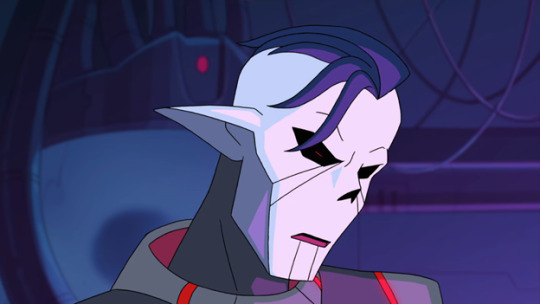
Wrong Hordak is emotionally unstable and is prone to fits of crying. (However, due to the comedic fashion in which his arc is written, I suppose that this could be taken with a grain of salt)
The clones are not only prevented from growing and maturing mentally, they are also robbed of childhoods –having been born in adult bodies and with the necessary knowledge to serve Prime literally programmed into them so as to make them able to serve efficiently from their first breath. As such, they are robbed of their formative years where one individual grows and develops naturally. Those precious experiences are replaced by Horde Prime’s literal programming through the hardware they have installed in their bodies to facilitate Horde Prime’s control over them (without their consent). In essence, they are a people born pre-”chipped”
Regardless of their actual age, and despite the fact that they are intelligent, capable and responsible individuals, I see the clones as having the emotional maturity of toddlers.
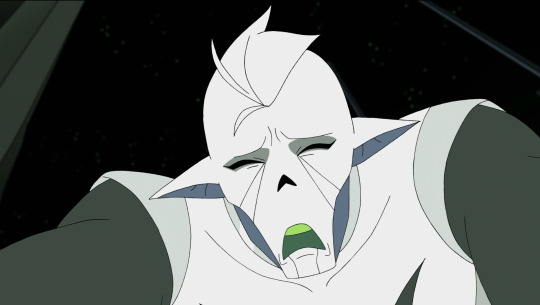
They never had the chance to develop any emotional coping skills, they were never allowed to have emotions to begin with.
2). Damage to normal thinking and feeling abilities -information is limited and controlled; dysfunctional beliefs taught; independent thinking condemned; feelings condemned
This is The Galactic Horde’s core belief:


Along with:


Incidentally, Hordak does his version of this speech trying to puff himself up in front of his soldiers… buuut Catra pushes the Failure button and that snaps him out of his little Prime impersonation moment.

More dysfunctional beliefs:
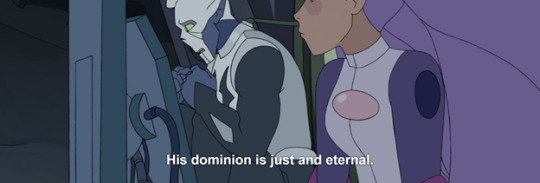
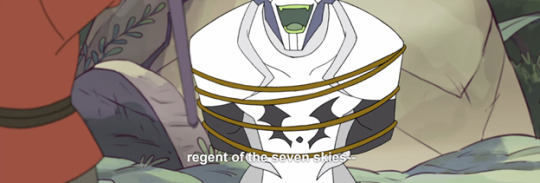

Condemnation of independent thinking:
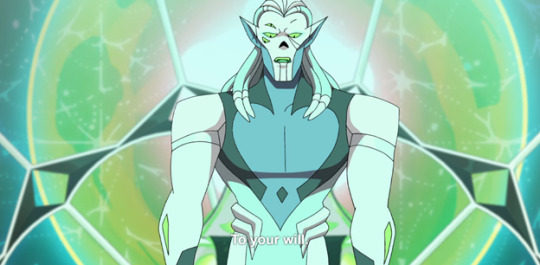


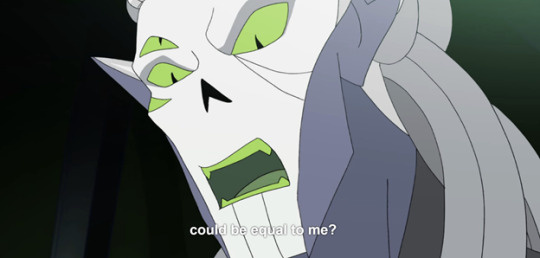
Results in this:
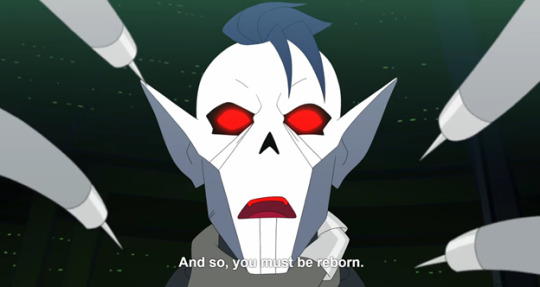
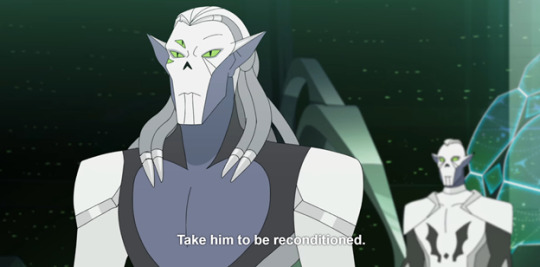
No further explanations are necessary…
3). External locus of control – knowledge is revealed, not discovered; hierarchy of authority enforced; self not a reliable or good source
Prime exerts his dominance throughout S5 by force,
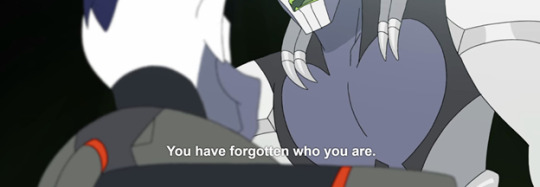
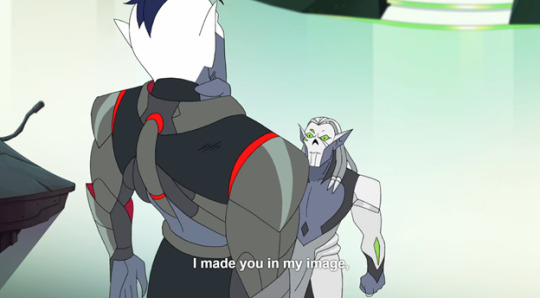
and coercion:

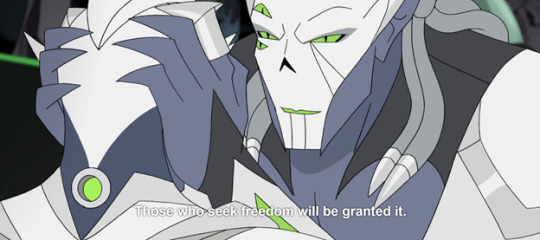
He is even petty and vindictive enough to force himself into Hordak immediately after his speech and to kill Entrapta with Hordak’s own body.
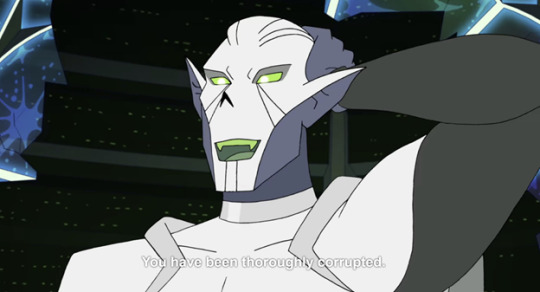
As for the self not being a reliable narrator… Hordak believed this about his former position.

He is not prone to exaggeration or deception being woefully incompetent in the latter – both perpetrating and spotting it. We have to assume that this is the way he saw his position in the Galactic Horde.
Season 5 revealed that all of the clones are equally disposable and interchangeable, there are no ranks. They are all equal tools whose sole purpose is furthering Horde Prime’s agenda. Horde Prime has no need for generals or delegating since he is able to inhabit his little brothers and be in more than one place at the same time. Hordak’s job in S5 was that of hall monitor and planetary acquisitions guy…
@cruelfeline goes into detail about the dissonance between what Hordak believes and what is actually his position in The Galactic Horde. A link to it is in the notes because Tumblr is being fussy.
4.) Physical and sexual abuse – patriarchal power; unhealthy sexual views; punishment used as for discipline
Some people have seen this, ugh… form of penetration… ugh again… as rape allegory.
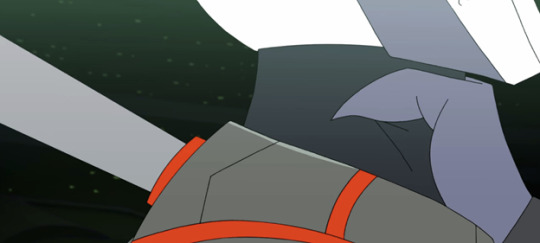
Not a hard thing to do since Prime himself is rape personified and he consistently forces himself onto and into his little brothers, Catra and later, the chipped Etherians. Prime does nothing but "bad touch" people all of S5 and is particularly enjoying his disciplining of his "wayward little brother", the most unworthy and unlovable amongst his brothers. (According to the extended scene)
Here’s some more of Prime’s touching with rape subtext:
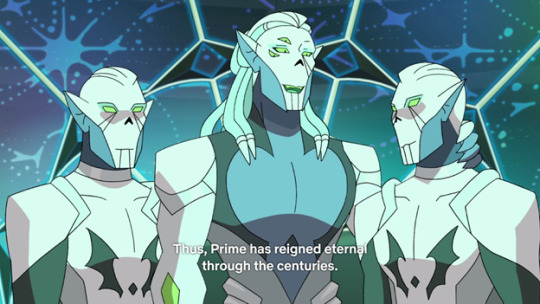
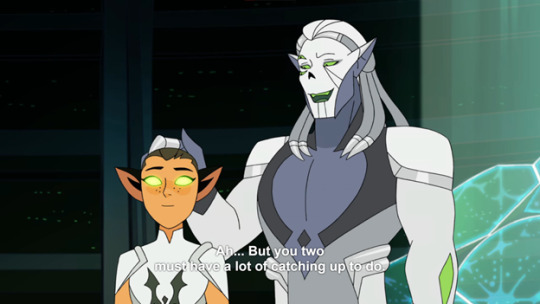
Here’s more of Prime forcing himself into his little brothers – they all seem to fight it and find it painful to some degree despite the fact that they have been conditioned to accept it and welcome it. Prime’s touch is a good thing, even when it hurts them.
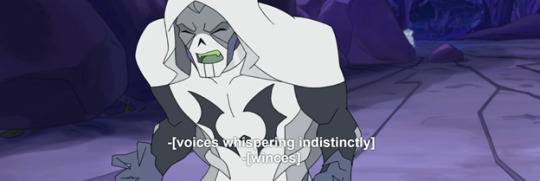
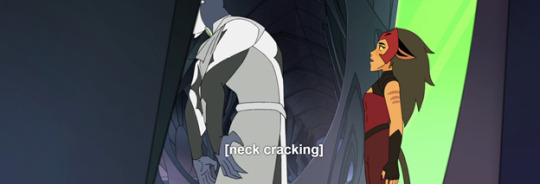
Ironically, the one who fights this violation the least is Hordak himself. (this could be either because he’s extra repentant and wished not to further draw Prime’s ire or that his condition of chronic illness has raised his pain threshold)
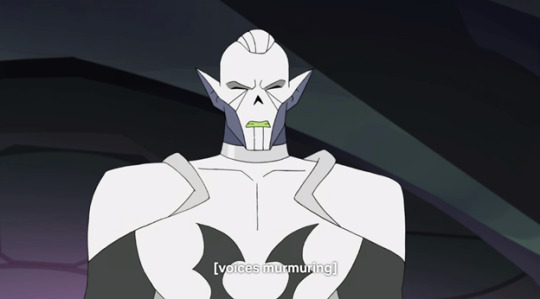
The process of possession is not seamless and some of the clones appear to be unsettled by it after prime retreats from their bodies.
As much as this Utter Disaster of a clone wanted to finish his little speech about dirt and as much as he was gleefully enjoying it, after Prime was done with him… he just wanted his task over with…
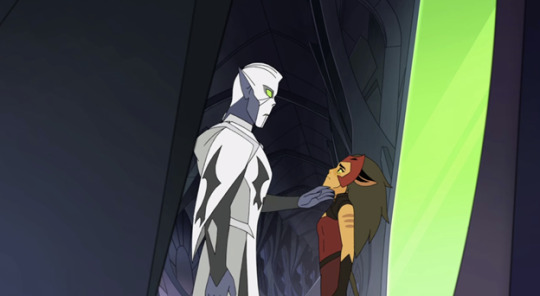
The very nature of their indoctrination makes them unable to escape what has been done to them nor change their whole world view without outside intervention – which is exactly the help that Wrong Hordak received immediately after being abducted from the collective by people who slowly de-indoctrinated him and offered him a supportive environment for all of that growth and healing to happen.
When the Best Friend Squad kidnapped him, he was ardent about his service to Prime and he only followed them because they deceived him in believing they were servants of Horde Prime.



By providing clear irrefutable evidence of Prime’s fallibility, deceit and the squad’s (mostly Entrapta and Glimmer) moral support throughout this moral crisis, they (just Entrapta here *coughs* ) were able to wean him off of his programmed behavior and offer him an informed choice.


This is information none of the other clones, not even Hordak were privy to.
Even with this information, Wrong Hordak is still in emotional turmoil (though the show plays it for laughs – yuck)
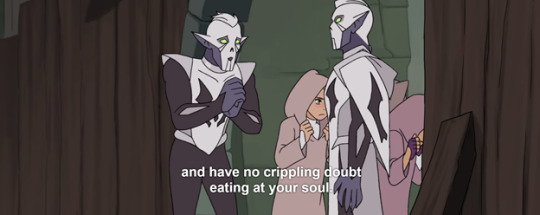
The closest Hordak ever gets to walking away from Prime’s doctrine is this moment:
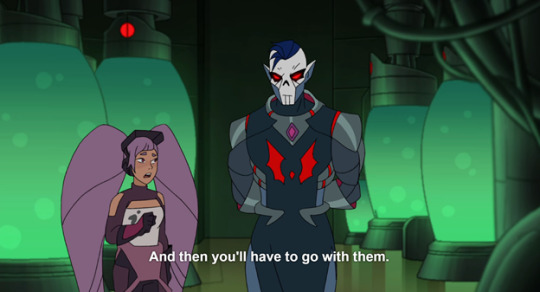
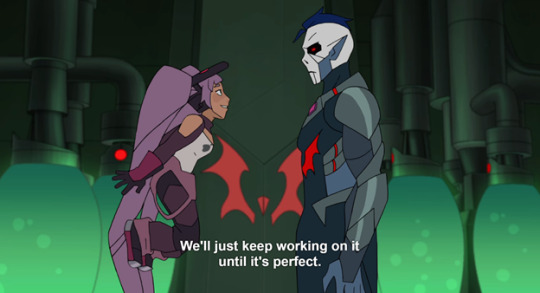

He was considering indefinitely putting it off to stay here, with her, and her worldview that he could be worth something, imperfect as he is. He is offered her emotional support and guidance.
Unfortunately... Catra nipped that in the bud before it could lead anywhere.
After convincing Hordak that Entrapta betrayed him, her message of inherent worth was rendered null, to him - her unconditional affection and the notion that he could to live apart from Prime were a manipulation. This further radicalized him in his faith and need to prove his worthiness.
Not only did Catra remove Entrapta’s influence over him, she goaded him even further with this cursed little speech and her whole “yass queen moment!”. you know the one...
“Get.Over.IT! You don’t need Entrapta. You never did. You don’t need a Princess in your life telling you what to do. Look at what you’ve done without her. You’ve build an army. An empire! You and me, we don’t need anyone. Forget them all. No one matters, nothing matters but this mission. You want to prove yourself, prove your worth? Then do it! You and I are going to conquer Etheria. And then, they’ll all see!”
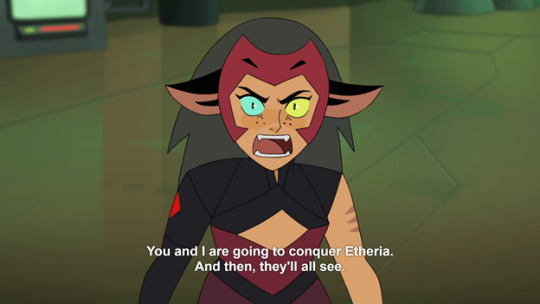
Both of them were in clear downfall in S4 and they amplified each other’s most negative tendencies. I will not hold this against her.
The last thing I want to mention is that for cult victims, it is incredibly hard, if not, almost impossible to leave their cults by themselves. The first step for leaving a cult in the real world is looking for outside assistance.
It takes enormous amounts of strength – an almost imaginable degree of resolve – to leave a cult, particularly when you may have been born into one and have no friends or connections on the outside world. Cult survivors are often ostracized by everyone they have ever known who remain within the organization. To a cultist, the world outside the cult is a hostile, sinful and dangerous place. The assistance of someone from the outside is crucial.
Only with the assistance of a “friendly outsider” or a support group can the former cultist change the world view with which they had been indoctrinated with (sometime since early childhood).
A cult and set of beliefs warps your whole world view to the point of delusion. Faith in the cultic creeds is more important than factual evidence. As a matter of fact, the evidence in itself is evil, a contradiction to the creeds of faith and successfully denying it is an act of faith fulfilled. This mentality is encouraged in cults.
Many people in this fandom have claimed that Hordak, once pulled through the portal was free to do as he pleases. (he didn’t chose to come to Etheria – his arrival on the planet was accidental)
This is not really the case. Hordak never decided to leave the cult. He was still part of the cult when he was sent to his death on the battlefield for his defect and he was still a believer when the portal delivered him to Etheria.


In essence, Hordak didn’t leave his cult so much as he was forced apart from it, physically. In spirit, he still believed in Horde Prime’s dogma. His experience is the equivalent of a religious man getting stranded on an island in the middle of the ocean. He is apart from his church, but his faith is still with him. Hordak’s faith hadn’t waned in the decades of separation. His purpose had always been returning to Horde Prime –hence the focus on building a portal and not on levelling towns with an arm laser cannons. He has proven in S4 that, had his main mission actually been conquest, he could have done it with not much difficulty – He wasn’t half bad at it actually. Instead, he delegated the conquest to his underlings and focused most of his attention on attempts at reuniting with Horde Prime via investigating rogue portals and trying to build one of his own.
Due to the nature of his “upbringing”, Hordak’s whole world view is warped. He has not had the benefits of a “moral” education from a human’s standpoint. Why would training cadets to become soldiers in your army be morally reprehensible when you, yourself, had been bred for war and have served your God with your first breath?
This was Hordak’s idea of a “normal” childhood:
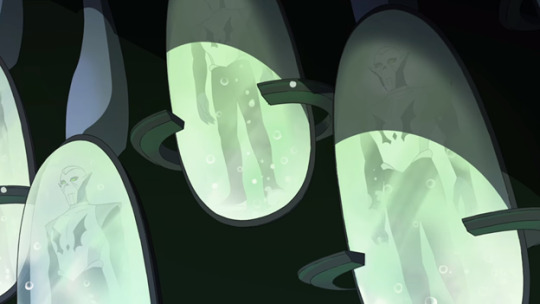
What could he possibly know about the healthy raising of children?
Why would conquering a planet be a morally reprehensible thing when his God did this to places?
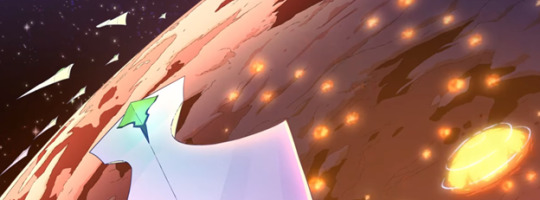
And this:
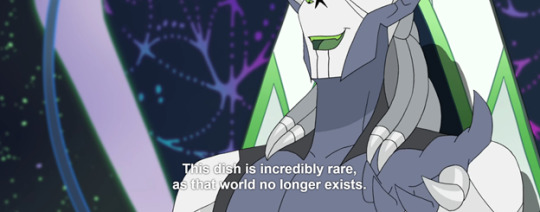
Before one ascribes evil motivation, for the sake of evil – one should bear in mind that these creeds were literally programmed into him. This is not a life he has chosen for himself– this is something he was born into, literally manufactured for, this is something that was done to him.
And for those that would have wanted him to regret his actions on screen, keep in mind that it will likely take a lot of therapy and reeducation before he even comprehends the nature and magnitude of his crimes on Etheria.
(besides the fact that he had spent 99% of season 5 in an amnesiac daze doesn’t help with the whole remembering his crimes bit either)
The show runner has declared in one of her post show interview that he will make reparations for the damage he’s caused.
What more do people want from a person born and flung into an impossible situation besides his head on a plate?
Phew!
Long post was long
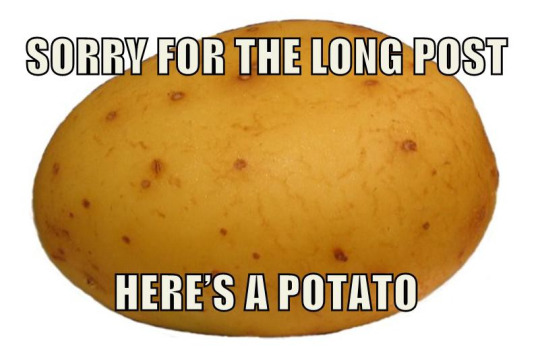
#hordak#horde prime#catra#spop discourse#spop meta#cultic indoctrination#religious trauma#will you stop calling them daddy issues now?
364 notes
·
View notes
Note
This is kinda random but I just felt compelled to ask since I saw this idea floating about. Someone said that not all transformative works are fanfiction (a distinction I can get behind) but then explicitly went on to say characters railing each other is like the distinctive factor which I mean.... Come on. But marinating on the idea I couldn't really pinpoint a distinct qualifier to separate it (medium aside).
So I guess my question is, are all narrative transformative works fanfiction and if not, what is the line between them? And what would you call the "others".
apologies for sitting on this so long. it took me a long time to think about. it’s something i’ve been dwelling on since i first started writing fic, and i think i only now can answer it.
this really comes down to being an issue of genre, and the purpose and function of genre as a craft concept rather than a marketing tool. very often a work’s paratext primes us for what we’re about to engage with. paratext is all the information around a given work. for example, the cover of a book gives you an impression of what’s inside the book. finding a book in the general fiction section of a book store gives you a different impression of a text than what you would find in the cookbook aisle. all of these paratextual details set your expectations for what you’re about to read.
so what happens when you have no paratext? how would you know what genre to place something into? you’d have to use the text itself. but sometimes, the text is not so clear.
for example, one of the first pieces i teach every semester is Jamaica Kincaid’s “Girl.” and the first discussion question i ask is, “what genre is this?” (it’s a short piece, and i recommend taking a look at it if you haven’t read it before.)
a lot of writers don’t like the idea of genre because they find it confining, and obviously i agree. art isn’t meant to be boxed in, and if a piece can securely fit anywhere, it probably isn’t very good or interesting.
however, if we consider genre as a lens instead of a box, we get a far more useful tool for inspecting work.
would you read “Girl” differently if i had told you before you read it that it was a poem? perhaps you would have entered into it with all your existing understanding of poetry. perhaps you would have paid more attention to the way it’s been laid out on the page, and the punctuation, and the order of the words. maybe you would have noticed it doesn’t look like the common understanding of a poem, so maybe you would have wondered, is it really a poem?
and if i told you it was a fictional story? maybe you would have entered into it with your understanding of a story. you would have paid attention to the characters and conflict. but, like a poem, it doesn’t exactly fit our common understanding of a story, either. there’s no inciting incident or rising action or climax. we’re not in a concrete time or space. and maybe you would have wondered, is it really a story?
“Girl” is actually a lyric essay. how would you have read it if you knew that? if you had never read a lyric essay, or didn’t know what a lyric essay was, this piece would then define that genre for you, and you would read future lyric essays thinking back to “Girl” and framing your impression from there.
this, of course, begs the question: what happens to our reading experience when we enter into works with an existing impression of what they are, and therefore what they should be?
we all engage with art bringing with us all our existing perspectives and preferences, and those shape our perspective of quality. some people believe that all melodrama is bad. by “melodrama” i mean, conflicts and emotional reactions that are over the top. however there are many genres that employ melodrama as a function of that genre. if you watched a soap opera without melodrama, for example, you’d think it was a pretty shitty soap opera.
this brings me to the idea of genre not as a categorizing device, but a means of affordance and constraint. melodrama is an affordance of a soap opera. soap operas are allowed to be melodramatic. length, by contrast, is a constraint of a soap opera. a soap opera is not allowed to be over X minutes long.
when we bring affordance/constraints to fanfiction, i think we can all agree that explicit sexual content is an affordance. it’s not the definition of fanfic, but it is something that is both common and in some cases expected. when we talk about fanfiction as a genre of idealizing and indulgence, we’re talking about the affordances of fanfic. yes, many fics concern themselves with emotional catharsis, but not all of them. many fics contain shipping, but not all of them. many fics employ tropes, but not all of them. many fics are written by hobbyist writers working in fan communities, but not all of them. and yet all of these things are so common that when we enter into a fic, they’re expected. they’re allowed. but they are not necessary in order for a piece of writing to exist in the genre of fic.
conversely, fanfic has very few constraints. in fact this is the question that took me so long to answer this ask. and i realized, the single constraint i could think of is that fanfiction always knows and acknowledges (in the paratext) that it is fanfiction.
if you file off the serial numbers? not fanfiction. if you write a creative response to an existing canon but then publish it without acknowledgement of that canon? also not fanfiction. if you get inspiration from another work and acknowledge or cite that work somewhere in the text, but are not actively transforming the canon text or naming it as fanfiction? not fanfiction.
these types of works may have the community spirit of fanfiction, and the work they do may overlap with fanfiction, and they may begin as fanfiction, but they are not and cannot be fanfiction.
when you write fanfiction, you always know it is fanfiction, because fanfiction is something that happens with intention. you might start writing a story that you intend to be fantasy but after 40k you go “oh damn this is actually horror.” but you can never get 40k into a story and go “oh fuck this is accidentally fanfic.” (although you may think, “this shares many affordances of fanfiction” which, go you.)
so finally, after actual years of thinking about this, i have a definition of the genre of fanfiction:
to write fanfiction is to openly and intentionally respond to an existing text, and to acknowledge the original source material in the paratext of the work.
212 notes
·
View notes
Text
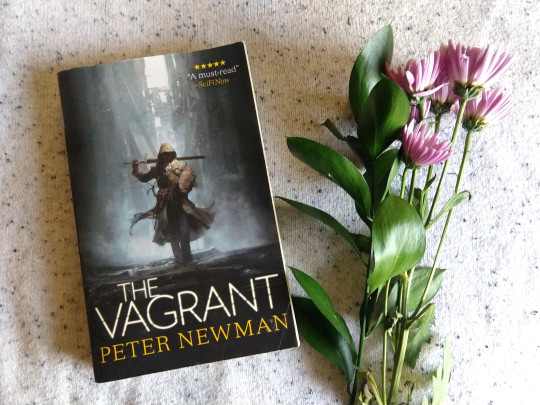
Books I Read in 2021
#48 - The Vagrant, by Peter Newman
Mount TBR: 46/100
Beat the Backlist Bingo: A non-human character
Rating: 2/5 stars
I did like enough about it to finish it, despite the concerns and complaints this review will list in detail; I don't care for it enough to keep going with the series.
I started this book almost two months ago, but in the middle of what eventually became obvious was a major reading slump. After 60 pages, I put the book on hold, reasoning that I was frustrated with reading in general and not with this specific book.
When I picked it back up, I started over, and this time, I annotated it to help myself pay more attention, and to pick at the edges of the mysteries that lie thick on the ground in this story. The "eight years ago" narrative line did eventually answer most of my questions--those it didn't were almost uniformly about world-building details I was struggling with.
So there's my first major complaint: this world is going for "cool" and "dark" without really having a cohesive style. Sometimes it's idyllic landscape, sometimes it's the Blasted Lands (which I will forever think of as a zone in World of Warcraft, but I guess the author hasn't played that.) The few cities had distinct but fairly generic personalities--one was a little Blade Runner, because there were neon signs everywhere, while another felt like a standard large fantasy town, and eventually the Shining City is certainly shiny, but also devoid of any originality.
The infernal aspects of the world-building--literally, the demons and how they worked--started out as an interesting concept, which I interpreted as them basically being incompatible with reality as we know it, and to combat that, they anchored themselves (in various and generally disgusting ways) to living flesh. Gross, creepy, excellent. But my early notes about what I pictured the Usurper and the Uncivil and the fallen Knights as actually looking like, or how I imagined they functioned, didn't end up jiving with information that came later. And yeah, readers can be wrong about things that authors set out clearly, but this felt more like I had developed a framework for the infernals that was more codified than what the author himself envisioned, because there were contradictions, and there were gaps, and whenever I encountered one I got frustrated.
Another frustration quickly sprouted from the style of the prose. What at first was a charming way to make sure I'm paying enough attention to connect some dots eventually became a slog. Yes, make me work for the connections about characters and plot. No, don't make me dig through every single line of a fight scene trying to figure out whose limbs are being cut off and who is buried under rubble and who died. There is a constant and deliberate lack of clarity to the narrative that I feel would serve the story better if it were saved for those big special occasions--who is the Vagrant, why can't he talk, how did he end up with the baby--than spreading it like a frosting over literally everything down to the smallest and most mundane details.
This extends to names, as many characters don't have them at all, or only get them late in the story, and even when they do, they are often still referred to by epithets. Harm doesn't need to constantly be "the green-eyed man," or I don't know, maybe he does, because half the time when he or the Vagrant look at something, the text doesn't say "The Vagrant looked at the sky," it says, "Amber eyes searched the clouds."
That's another complaint--the detachment. At the bottom of page 107, I scrawled a note to myself: "I've just hit on what I don't like about this narrative style--the descriptions sound like I'm reading a screenplay." The sentence which triggered this revelation reads: "Sweaty faces shine in shielded lamps." It's the first sentence after a scene break, and it frustrated me because I could see the effect of the description in my head--sweat glowing by lantern light in an otherwise dark space--but I didn't know who those faces belonged to! I didn't know who to picture because that sentence told me nothing about where the scene had jumped to! The following line tells me that men and women are in tunnels--okay, I'm in tunnels, but who are the men and women? The third sentence finally gives me a character name and I know I'm back with Tough Call's gang.
And this, too, is a constant problem. Not every chapter or scene break takes that long to establish who I'm reading about and where we are, but throughout the story, there's this repeated stepping back from the characters, a distancing, by referring to their actions in that deliberately obscure way. "Reluctantly, amber eyes open." "Breath labours in the dark." "A small foot twitches." I know that active verbs are great and conjugations of "to be" are easy to overuse, but it's possible to swing the pendulum too far in the other direction. Let my brain rest on some easy verbs and sentence constructions once in a while! Not everything has to be so vague and portentous!
Final stylistic complaint: I dislike present tense narratives in general, but lots of people like them, so whatever, authors are going to keep using present tense and sometimes I'm going to end up reading it. But I absolutely fail to understand the benefits of using it for the past story line. If the main bulk of the story is "now" and uses present tense, shouldn't the "eight years ago" use past tense? Because, you know, it's the past?
So after all of that, what did I even like about this? The baby. The goat--the tiny and rare scenes written from her viewpoint are generally hilarious. Harm ended up being okay, in shouldering the weight of one-sided conversations with the silent Vagrant. Though I question the wisdom of having a mute protagonist paired with a deliberately vague and detached narrative style (seems like an obvious recipe for the difficulty I had connecting to the story) I do think Harm brings out the Vagrant's desire to communicate as they get to know each other, and their deepening relationship as they bond over their struggles to save people, keep themselves and the baby safe, and still find a way to journey onward...okay, that was compelling enough to keep going even when I was frustrated by nearly everything else.
But the ending? No, sorry, this book failed to get me invested enough to care about why our protagonist achieved his apparent goal then decides to reject the dominant social order to do his own thing. I get it--it's super clear, even for this often-vague story, because the reason is exposited immediately after it happens. But I didn't care. And I don't have any need to find out what happens to our ragtag found family of weirdos afterward.
Hm, I hadn't considered that before. Found family, as a trope, pretty much relies on emotional investment in developed characters, whereas this story opted for (mostly) flat characters viewed from a safely detached distance. No wonder I couldn't get into it, these goals are fundamentally opposed.
#booklr#book review#book photography#the vagrant#peter newman#sorry booklr i didn't like it as much as the rest of you seem to#my reading challenges#mount tbr 2021#beat the backlist 2021
6 notes
·
View notes
Text
Crimson Curls
Summary: A barista at the Avengers Tower coffeeshop goes missing. Her boyfriend, prominent Avengers engineer Michael Hauer, headlines a desperate campaign to find her, aided by the support of Tony Stark and the rest of the super-powered team. But as Hauer's narrative begins to unravel, it becomes clear that a certain Asgardian prince knows more than he's telling.
Pairing: Loki x Original Female Character
Chapter 1: Disappearance
Previous chapter | Next Chapter
Word Count: 3,138
A/N: This is definitely something born out of my obsession with true crime and missing persons cases... I'm not sure if anybody else is as interested in this concept as I am, but I had the time of my life writing this story, so I hope that translates to you in some way.
Also, this is my first multi-chaptered fic (I know, exciting, right?!)-- part 2 should be up within the next week.
Thanks for reading!
TW: domestic violence
Read it on Ao3
Kristine Ververs was first reported missing at 6:07 AM on Tuesday, March 17, by her boyfriend Michael Hauer. He was a bit worried, he said, because she had stormed out of their apartment the night before after a fight, and he had only just realized when he woke up that morning that she never came back. His attempts to call her led him to discover that she had left her cell phone on the kitchen counter.
The dispatcher asked him to wait at the apartment for investigators to arrive. He told her he couldn’t. He had to go to work. A bit befuddled, she asked if it was at all possible for him to wait until police arrived so they could ask him some questions.
“You don’t understand,” he said. “I work for Tony Stark.”
Michael Hauer was considered to be fairly acclaimed at the Avengers Tower. He had been one of the first engineers hired when the Tower opened, picked out by the infamous genius-billionaire-playboy-philanthropist himself. He spent his days in the restricted upper floors, designing and testing projects so confidential that his girlfriend didn’t even know what they were.
He had met Kristine at the Tower. She worked in the coffeeshop next to the cafeteria, where the employees of all 93 stories flocked to with bleary eyes each and every morning. Kristine was hardly the most talkative barista there (on the contrary, she appeared to make it a point to say only the bare minimum), and yet she was the girl everyone thought of when they thought of their morning brew. Her wild mane of curly red hair stood out in a crowd. Even when she wasn’t in uniform, people knew her as the coffeeshop girl.
It was unclear what she thought of this. A lot of things about Kristine were unclear—she spoke very little, and never about herself. Her coworkers often wondered why someone so shy would choose to work a job that so heavily relied on social interaction, but she managed just fine. Despite her natural demeanor, she would put on a smile and speak in that bubbly barista voice people found either endearing or irritating for the customers, and no one thought anything of it.
When she disappeared, people were shocked.
“You mean the redhead from the food court?” asked Bruce in the apartment story of the Tower when the news broke. “She’s the one?”
“Yeah,” said Tony. They were crowded around the TV, the newscaster flashing a photo of Kristine shyly smiling at the camera as the tip hotline ran across the bottom of the screen. “Poor Hauer. He was a mess. I can’t believe he even came in today.”
“I didn’t know they were dating. I don’t think he’s ever mentioned her.”
“Yeah he has,” Steve turned around in his chair to face the doctor. “He brought her to the Christmas party, remember?”
Tony frowned. “Did he?”
“Of course! I remember!” Thor lit up. “She danced with my brother!”
“Oh that’s right,” Tony chuckled. “Poor girl. She didn’t say much, did she?”
“She did strike me as a bit shy,” Steve said. “I hope it’s all a misunderstanding. Maybe she’ll be back on her own.”
But she didn’t. As the days passed with no news of Kristine Ververs, media attention snowballed around the Tower. On its own, there wasn’t much to the case, but the fact that both the missing girl and her boyfriend worked for the Avengers caught the attention of the public. It seemed so impossible. How does someone who walks among superheroes vanish without a trace?
Missing posters lined the hallway walls: HAVE YOU SEEN KRISTINE? People rushed to news stations for interviews, most of which had no connection to her beyond the fact that she sometimes made their lattes in the morning. Hauer held emotional press conferences, begging anyone with information that might lead to Kristine to come forward. Everyone looked at him differently now. The standoffish, stiff engineer that had once been considered uncomfortable to be around was now a grieving boyfriend. They sent him flowers and patted him on the back in the halls, telling him they’d be praying for his girlfriend, promising to help keep the story alive.
Although that probably wasn’t an issue. Stark himself got in front of the camera, making international news as he expressed the Avengers’ concern for the Ms. Ververs and offered to help the police in their investigation in any way they could.
The investigators would have happily accepted this help if they had found anything for Stark to help with. But the fact of the matter was that there was nothing: no clues, no sightings, not even the slightest trace that Kristine Ververs had ever left her apartment. The security cameras in the lobby showed her coming home from dinner with Hauer at 8:13 PM that Sunday night, but had no record of her exiting the building around two hours later, when Hauer saw her storm out. They considered that she may have been pulled into another room, that for some reason she left through a fire escape, but the few cameras in the hallway showed nothing and witnesses were nonexistent.
Kristine had seemingly vanished into thin air.
“Do you think there’s something supernatural at play here?” Natasha asked one day. “Like, a leftover portal from the Convergence or something?”
“Unlikely,” Bruce said. “The Convergence caused our tech to go haywire. We’d definitely be getting noticeable readings if there was a portal down the street.”
“But something like that is still possible,” Tony interjected. “What with all the crazy shit we deal with on a regular basis. Someone might have been going after Hauer—he’s one of our top engineers, it wouldn’t surprise me.”
The fact that she had left her phone was strange, as well. The screen was cracked rather badly—Hauer explained that had happened a few weeks ago when she dropped it on the bathroom tile. Her call history showed that the night she went missing she had phoned an unlisted number. The call hadn’t been long—likely, it had been cut off before the other line even had a chance to answer.
Unfortunately, there seemed to be no clue as to who was on the other line. The number was so badly scrambled that it was untraceable, even with Tony’s resources. In fact, he was relatively certain that whoever she had called had been using his tech to hide their number—leading to a heightened suspicion cast upon the higher-ups at the Avenger Tower.
When after two weeks there were still no leads, Tony held another press conference to announce that he would be posting a one-million-dollar reward for any information that led to the safe return of Kristine Ververs. Hauer joined him, thanking Mr. Stark profusely and pleading once more for help from the public. In the Tower, the others watched the broadcast from the television in silence.
“Filthy weasel.”
No one had noticed Loki entering the room until he spat the words like venom, glaring at Hauer’s distressed face on the screen.
Nat frowned. “What’s your problem?”
The Asgardian made his way to the kitchen and set about boiling water, still scowling darkly. “He has the audacity to sit there and wail as though he’s the victim of some great crime,” he said. “As if he’s some tortured soul wracked with fear.”
“Brother, the woman he loves has gone missing,” Thor said. “Can you not blame him for being in pain?”
“Oh yes, he’s in such pain,” Loki rolled his eyes as he prepared a mug and teabag. “Stark is close with him, is he not? Has he asked him what it was they were quarreling over so passionately that his lady felt compelled to run out of their home in the middle of the night?” He mixed the water in the mug. “Or has no one thought to question that?” With that, he slipped down the hallway with his tea, leaving the others and their gaping expressions behind.
Loki wasn’t the first to doubt Michael Hauer’s authenticity. His neighbor, Colleen Donalds, had come forward to the police shortly after the case went public to voice her concerns. She lived across the hall from the couple, she said, and a lot of times she’d overhear their arguments. They were always incredibly one-sided. She told the police that she very rarely made out Kristine’s voice during these exchanges, but Michael’s boomed all the way down the hall. He called his girlfriend the most demeaning things, throwing out words that Colleen was ashamed to repeat. She felt sorry for Kristine.
“She’s always so quiet,” she said. “Even when I run into her when Michael’s not around, she barely says a word. I can’t believe she stays with him.”
Colleen Donalds attempted discretion. Her story was to the police and the police alone, avoiding making any direct accusations and trying to stay out of the entire situation as much as possible. Marlon Arcardi had no such interest.
“He hits her,” the couple’s next-door neighbor told the tabloid reporters. “I hear it through the walls. I’ve called the cops on him a couple times, but they never do anything about it. He was doing it the night she went missing, too. I heard the crashing. He’s a complete piece of shit.”
The magazines that hit the stands next to the grocery store checkout lines screamed in red ink: AVENGER ENGINEER RESPONSIBLE FOR GIRLFRIEND’S DISAPPEARENCE?
When questioned about it, Hauer denied all allegations. “We’d get into fights,” he said. “What couple doesn’t? It was nothing serious, and the more we focus on it, the more distracted we become from the actual issue: Kristine is missing.”
“Are you saying Mr. Arcardi is lying in his statements to the press?”
Michael Hauer shrugged bitterly. “He wants attention. He’s getting attention. He doesn’t know what he’s talking about. He’s trying to derail the investigation so he can have fifteen minutes of fame. It’s sickening, because we right now we need to be concentrating on Kristine.”
Hauer managed to skirt by on this explanation for a bit, but the investigators soon discovered that Marlon Arcardi was telling the truth—at least, about calling the cops. In the two years that Kristine and Michael had been living together, the police had been called to their apartment nine separate times: seven public disturbance calls from a smattering of different neighbors including Acardi, and shockingly, twice from Kristine herself.
The police refused to release these calls, saying only that each time there were no charges pressed. The public was left to draw their own conclusions as they called in Michael Hauer for more questioning. Suspicion began to blossom.
“If they’re this perfect, happy couple like he wants us to believe,” asked one newscaster. “Then why is she calling 911 on him? Why is she running out in the middle of the night? The whole thing is extremely concerning.”
More people began coming forward. There seemed to be no end to the neighbors who overheard crashes and cursing coming from the Hauer apartment. The baristas Kristine worked with started doing interviews as well.
“We used to have like, you know, night outs on the weekends sometimes,” said Curt Chambers, one of her coworkers. “We’d always ask Kristine, but she always had some excuse. Like, she was sick, or she already had plans, or something. I joked with her once, like ‘you can just say you don’t want to go, we won’t be offended.’ And she said something like ‘no, it’s not that. It’s just my boyfriend doesn’t like me being out too late.’ And I remember thinking that was a really weird thing to say.”
Elaine Janson, another coworker, had more to add. “Something always felt off about that relationship,” she said. “They’d come in together, and then he’d come down a couple times during the day. It was like he was checking on her. It was weird. And they always left together. If he was working late, she’d wait for him.” Elaine shrugged. “Kristine always seemed so tense when he was around. I mean, she was shy to begin with, but when Michael came by it was different.”
It was also revealed that Michael Hauer had failed two lie detector tests: one taken on March 19th, within days of his girlfriend’s disappearance, and another on March 27th.
Tony Stark was inundated with calls: from reporters, from employees, from concerned citizens, some asking if he still supported Michael Hauer in light of new allegations, others demanding that he fire him immediately. He responded in a press conference in front of the Tower.
“As of right now, I’ve been shown no evidence indicating that Michael Hauer is in any way involved in Kristine Ververs’ disappearance. If and when that evidence comes to light, we will reevaluate the situation and take appropriate steps.”
Then somebody leaked the calls.
No one was quite sure who got ahold of those tapes, but by morning they were being blasted on every single news broadcast under the sun. It was the first time that the public was hearing anything in Kristine’s own words, and it didn’t bode well for Michael Hauer.
“Can you please just send someone?” she whispered into the microphone, breath labored as she struggled to get the words out. “He’s really mad, I think he’s going to break down the door. Please, is someone coming?” In the background, a masculine voice was yelling something intelligible, clobbering at a wall.
“Does he get mad often?” the operator asked after assuring her that the police were on their way.
Kristine Ververs gulped back a sob. “He’s always mad.”
The second call didn’t even have words. A scream, the crash as the phone tumbled to the floor, more yelling, pleading, crying, pounding, the operator tracing the call and sending in a unit…
Michael Hauer was formally asked to resign from his duties at the Avengers Tower. When he refused, he was terminated.
Still, he remained steadfast in his story. “Kristine has been missing for nearly a month now,” he stated in a recording posted to social media (press conferences were out of the question now; so many people showed up to protest that he couldn’t get a word in edgewise). “On occasion, we would get into violent fights, but I would never do anything to hurt her. I loved her more than anything. Please, don’t allow my mistakes to derail the investigation. We must not lose focus.”
A tweet of the video link with the caption “You loved her?? Enough lies. Where’s the body, Michael?” shot up to over 2 million likes in a day. #WheresTheBodyMichael and #JusticeForKristine began trending. Petitions for the arrest of Michael Hauer racked up signatures by the hundreds.
On April 21st, over a month after Kristine Ververs was first reported missing, a second, more in-depth search of the Hauer apartment was conducted. They noticed some things that had been missed the first time. The door lock had recently been replaced. The television screen was scratched. But, most critically, there was kitchen knife missing from the set atop the refrigerator. When questioned, Hauer claimed he had no idea what could have happened to it.
Detection dogs were brought in. While the cadaver dogs found no sign of the presence of a corpse, two different blood hounds alerted to the scent of human blood in the kitchen area and indicated a trail leading towards hall. A sample was taken from the carpet and sent to the lab for analysis. With the help of the advanced technology offered by the Avengers Tower, it was conclusively identified as Kristine’s blood.
As if that wasn’t enough already, a few days later, on April 25th, a trash collector turned in the missing kitchen knife to the police. He said he had noticed it in a dumpster earlier that day and recognized it from the description in the paper. There were three sets of fingerprints on the handle: Michael Hauer’s, Kristine Ververs’, and an inconclusive set assumed to be the trash collector’s, despite his insistence that he was wearing gloves when he picked it up. Kristine’s DNA was found on the blade.
The public had been screaming “GUILTY!” ever since the phone recordings were released. Now, they roared.
Michael Hauer was arrested on April 29th and charged with the murder of Kristine Ververs.
It was a shocking turn of events. Technically speaking, there was still no proof that a murder had taken place: there was no body, nor any sign that one existed. And just as there was no evidence of Kristine Ververs leaving the apartment that fateful March 16th, there was no evidence of Michael Hauer leaving the apartment that night either, especially with something as cumbersome as a human corpse.
The twitter hashtag found its home in newspaper headlines: Where’s the Body, Michael?
In the penthouse of the Avengers Tower, Tony rubbed his forehead. “This is such a fucking mess.”
They were gathered once again in the living room, watching as the newscaster recapped the last month and a half, breaking news that was already known. Kristine’s picture, with her downcast cerulean eyes and her frizzy red curls, flashed across the screen once more.
Tony sighed. “He just seemed so normal. I never would have thought—”
“You think he did it?” asked Steve.
“Well, he did something,” Tony snapped. “Clearly. He’s got a history of violence, her blood’s all over the floor—”
“No one’s debating that he did something,” interjected Bruce. “But if he killed her, what happened to the body? He never left the apartment that night, and there’s no evidence that a cadaver was ever stored there”
“He’s smart! That’s why we hired him, he’s a freaking genius! He probably thought of something—”
“Thought of what?” the doctor asked, throwing up his hands. “Teleportation? How the hell did he get the body out?”
“He didn’t.”
The group turned around to find Loki lurking in the back, studying them carefully from the shadows.
Bruce was the first to find his voice. “What?”
“He didn’t remove the body, because there was no body to remove,” he said deliberately.
“But, Loki,” Thor said uncertainly. “Weren’t you convinced Hauer was a killer from the start?”
“I never said he was a killer. I said he was a filthy weasel,” Loki said. “And he is, clearly. He's a slimy, abusive, manipulative, wretch of a man, but he's not a killer—although he likely believes himself to be."
Tony frowned. "What are you talking about, Loki?"
"He cannot be labeled a killer if his victim survived his attempt on her life. Which she did,” Loki paused a moment to let his statement sink in. “Despite Michael Hauer's best efforts, Kristine Ververs is very much alive.
52 notes
·
View notes
Text
WandaVision Finale Ending Explained
https://ift.tt/eA8V8J
This article contains WandaVision spoilers.
After eight near-perfect episodes, the story of WandaVision has concluded with a finale installment that sticks the landing on all fronts, including multiple cinematic battles, several heartfelt goodbyes, and a long-overdue moment of agency for a heroine who has so often been denied a choice in her own future.
But while “The Series Finale” is a deeply satisfying coda to what is probably Marvel’s most emotionally satisfying outing to date, it leaves us with more than a few questions about where these characters go from here. Let’s break down what happened in the WandaVision finale, and what it might mean for the Marvel Cinematic Universe going forward.
cnx.cmd.push(function() { cnx({ playerId: "106e33c0-3911-473c-b599-b1426db57530", }).render("0270c398a82f44f49c23c16122516796"); });
Wanda Transforms Into the Scarlet Witch
Thanks to Agatha’s pronouncement last week, we already knew that Wanda was the legendary Scarlet Witch but in “The Series Finale” we see her fully embrace her chaos magic, right down to an amazing contemporary riff on her traditional comics costume. (That headpiece! The cape! We love to see it!)
There’s even a return of the mind control visions we saw her deploy to such great effect in Avengers: Age of Ultron. What can’t this Wanda do?
Granted, we still don’t know what all this power now means for her character in a larger sense, but to be fair, neither does she. Wanda’s abilities as displayed in this episode are fairly tremendous, as she uses witch runes to neutralize Agatha, wipes her mind, and brings down the Hex she’s built around Westview, freeing its residents.
In the episode’s post-credits scene, however, her abilities appear to have grown even further, as she’s able to take in a scenic lake view even as her astral self is also busy reading the Darkhold, right down to making its pages turn on their own.
This is a move we’ve seen Stephen Strange pull before, but according to Agatha, Wanda is even more powerful than the Sorcerer Supreme. So….what else will she be able to do? That seems to be what she’s trying to find out.
Westview Returns to Normal (Sort of)
During her (quite frankly pretty badass) battle with Agatha, the older witch frees several Westview residents from Wanda’s mind control, forcing her to face what she’s done to the townspeople in her quest to build a perfect life. The simultaneously angry and desperate crowd of Westview residents – who look like nothing so much as a suburban take on a horde from The Walking Dead – confront Wanda and reveal a bit of what it must really like as a person who lives under the town’s spell.
The most harrowing victim is certainly town queen bee Dottie, who comes to herself long enough to beg Wanda to allow her to see her daughter, or perhaps write her into the larger storyline as one of the twins’ friends. But we also learn that Wanda has been projecting her grief and pain into Westview’s nightmares, forcing them to suffer right alongside her, rather than providing a peaceful, perfect escape.
What Happened to Agatha Harkness?
At least one resident of Westview won’t be returning to normal, however. After Wanda defeats Agatha by scattering witch runes around the Westview Hex to neutralize her magic, she uses her own power to wipe Agatha’s memories and essentially turn her into nosy neighbor Agnes, the WandaVision “role she chose,” for good.
Your mileage may vary on whether this is an acceptable ending for Agatha – a character who was, admittedly, often monstrous, even though she was right about the way that society is all too willing, even eager, to vilify powerful women out of fear (and often just because it can). On the plus side, since nothing lasts forever in the Marvel Universe and Agatha Harkness is a pretty powerful witch in her own right, there’s every chance this character will reappear down the road. After all, Agatha was Wanda’s mentor in the comics and she tells Wanda here that her magical expertise will be needed in the future.
We Said Goodbye to Wanda’s Kids (Or Did We?)
As products of the Hex, young Billy and Tommy Maximoff’s fates were always going to be tied to it, so in choosing to break the illusion, Wanda also accepts that she’ll have to say goodbye to her sons. In one of “The Series Finale’s” most heartbreaking scenes, she and Vision, knowing what’s coming, tuck the boys in for bed one last time, as the red glow of the shrinking boundary line edges closer to their house.
Wanda also thanks the boys for choosing her as a mother. Reader, I cried. Plus, this basically confirms that Billy and Tommy aren’t entirely constructs of Wanda’s imagination. They’ve come from somewhere, and possess something like souls. How that all happened is anyone’s guess – here’s your entry point for Mephisto, folks! – and it’s something future series can explore, but it’s certainly the way I’d prefer to read it.
But, since the last thing we hear on WandaVision is also the voices of Tommy and Billy shouting to their mother that something is wrong, it seems pretty likely we’ll see some version of these characters again. There’s precedent in the comics after all, and finding her lost boys is a pretty powerful narrative throughline to carry over to Doctor Strange in the Multiverse of Madness.
What Happened to White Vision?
Paul Bettany’s dreams of essentially working with himself are realized, as Vision and the White Vision come to blows in the skies of Westview. But despite the epic battle between the synthezoids – or, synthezoid and Mind Stone-fueled recreation of that same original, as the case may be – physical combat isn’t the most compelling, or even interesting part of their encounter.
Instead, it’s philosophy. Yes, you read that right. Upon realizing that the two are too evenly matched for either to emerge victorious, Vision decides to engage the White Vision in a thought experiment about their shared existence, and whether either of them is truly the man (robot?) they claim to be. The two end up in a sort of pseudo-philosopher’s debate about The Ship of Theseus, a thought experiment centered on issues of identity and meaning, and what makes a thing real.
This is surprisingly deep stuff for a Marvel property but the conversation contains tantalizing hints about what we could expect as we head into Phase 4 of the MCU. After all, it will likely contain stories full of magic, mutants, and transformation of all types; this is simply WandaVision giving us a metaphorical anchor to hang onto throughout. Well, that and providing a way to bring Vision – or some version of him – back for good, as Westview Vision restores White Vision’s memories and gives us all a reason to hope that he and Wanda will one day be reunited again.
Was the Vision in Westview Real?
Yes and no. The Vision that lived in Westview and shared a house with Wanda wasn’t physically the Vision we’d previously seen in the Avengers films. He was a flesh and blood construct, created by Wanda’s power, informed by her grief memories, and born from the piece of the Mind Stone that lives inside her. (This makes sense, given that the rise of Wanda’s magical abilities was connected to her initial exposure to the Mind Stone. As Agatha puts it, the Scarlet Witch is forged, not born, and for Wanda, that crucible was her time with Hydra and the Infinity Stone that served as a sort of cosmic gasoline on her sleeping abilities that might never have stirred otherwise.) This Vision represents Wanda’s hope and sadness, but mostly her love.
And, as a result, even Westview Vision doesn’t greet his oncoming demise with sadness, or even fear. Instead, he reasons, he and Wanda have been here before twice already, forced to say goodbye before their time. And since their relationship has survived before, there’s every reason to believe it will again, and they’ll find their way back to one another.
Monica’s Powers, the Skrulls, and Captain Marvel 2
Unfortunately, thanks to everything else going on in “The Series Finale,” Monica Rambeau doesn’t have a ton to do here. However, she does get a straight-up hero moment, where she throws herself in front of a bullet (or four) for Wanda’s kids and reveals a heretofore unseen ability to phase through objects and slow them down. She also frees the real Ralph Bohner, and happily helps send dirtbag SWORD director Tyler Hayward to prison.
Happily, however, despite her limited screentime in this episode, Monica’s MCU future looks bright. In the mid-credits scene, she’s approached by a Skrull disguised as a SWORD agent who takes her aside and reveals she was sent by a friend of her late mother, Maria’s. And that friend, who is most likely Nick Fury, would like to see Monica – in space.
We’d all basically assumed that Monica, who is Maria’s daughter and clearly has some as-yet-unprocessed resentment toward Carol Danvers, would be a significant player in the upcoming sequel Captain Marvel 2, but perhaps there’s an even broader future in store for her, as part of the SWORD-like organization Fury and the Skrull named Talos formed at the end of Spider-Man: Far From Home.
Who Was the Fake Pietro Maximoff?
Sadly, the character played by Evan Peters in WandaVision was not actually Wanda’s brother Pietro ported over from the FOX X-Men universe like we all hoped. So, yeah, unfortunately, that means mutants technically still do not exist in the MCU, and that’s a problem another movie or series will have to address.
While trapped in his self-described “man cave”, Monica discovers that the Fake Pietro is really just Ralph Bohner, the mysteriously absent husband Agnes was constantly complaining about throughout the season. Agatha kept him under her spell using an enchanted necklace, and when it was removed his real identity returns. Whether the fact that Agatha’s punishment to live as her Agnes identity involves being really married to Ralph is unclear but in Westview, anything is possible, I guess.
Wanda’s Future and Doctor Strange 2
Wanda has long been confirmed as a major player in the upcoming sequel Doctor Strange in the Multiverse of Madness, but we haven’t known how exactly she would fit into this story, having never exactly met Stephen Strange before. But since the WandaVision post-credits scene confirms that the new Scarlet Witch is determined to learn more about her powers, it seems that will change fairly quickly. The only question is, how?
Stephen Strange has served as a mentor to many magic users throughout Marvel Comics history and could certainly be someone that Wanda seeks out to help her access and control her new abilities. But, given that she’s also currently DIY-ing her knowledge of witch history with a magical item that is basically subtitled the “book of the damned” it’s also very possible that she and Strange will end up at odds over the Darkhold’s existence, her possession of it, or both. Plus, there’s that interesting wrinkle of her still hearing the voices of her construct children that shouldn’t still exist outside of Westview thing. Time to explore the multiverse, anyone?
The post WandaVision Finale Ending Explained appeared first on Den of Geek.
from Den of Geek https://ift.tt/3bl8T3d
6 notes
·
View notes
Text
Familial Bond
With video game releases that I’m interested in few and far between (or delayed), I felt compelled to make a proper dent in my pile of shame. In truth, it was just a simple excuse for me to pull out in order for me to finally finish Kiryu’s saga by playing through Yakuza 6: A Song of Life. Unlike the last two titles in the series, Yakuza 6 returned its focus on our favourite civilian-who-looks-like-a-yakuza, Kiryu Kazuma. There would not be four characters all vying for my attention with their separate narratives that would collide in the last chapter. Would there still be some strange government cover-up bullshit? You bet! So, without stopping to wonder if I should play something a little more light-hearted after finishing The Last of Us Part II, I dived head-first back into Kamurocho.
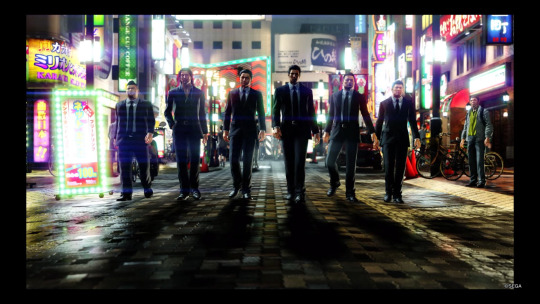

Yakuza 6 starts right at the end of Haruka throwing away her cherished dream because she could not continue lying about her family. Despite Haruka’s best attempt at reuniting with both the other orphans at Morning Glory and Kiryu, her father-figure is almost immediately arrested on trumped up charges of assault. With Kiryu’s decision to cleanse himself of his sins, however, Haruka is left at the mercy of the media. Unable to deal with the negative press, she then flees Okinawa to allow her pseudo-siblings the chance at achieving their own dreams without casting a shadow.
The motivation felt incredibly shallow as it all played out, considering that Haruka barely called the other children during her three years stint away. When Kiryu returned, it was understandable that he would be somewhat outraged to find Haruka gone. I’m not entirely sure who looked after the rest of the orphans. Maybe Ayako? But where would they have obtained the money to be properly fed and clothes? Were the subsidised by the government? Plot holes aside, Haruka’s disappearance was enough to spur Kiryu back to his old stomping grounds to find out what had happened to his young charge.
In Kamurocho, however, many things have changed. Increased tensions between the Tojo and the Saio triad now pushing into the area have put people on edge. But as Kiryu wanders around, hoping to find clues on the whereabouts of Haruka, he is informed that she was involved in a hit-and-run. And SURPRISE! there’s now a baby in the mix.
With such an odd beginning, it took some effort for me to properly click with the story. Like many, I had placed Haruka on a pedestal. The fact that she became pregnant and had birthed out a son seemed unfathomable. And then for the child’s father to have been a member of a small yakuza family in Hiroshima AS WELL AS THE HEIR TO THE SAIO TRIAD was a bit much to take in.
As such, it was imperative that I distracted myself with almost all the substories and side activities that were on display. And there were many. From being the manager of a baseball team to ousting a corrupt gang from the streets of Kamurocho. I very much liked the spearfishing elements as they brought a new dynamic to the gameplay that I was accustomed to when it came to the Yakuza series. The reintroduction of Pocket Circuit Fighter was also a fun distraction.
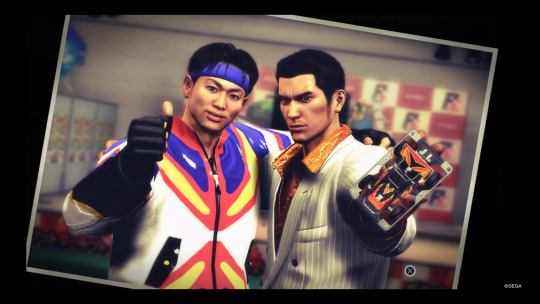
But, of course, how could I forget Ono Michio? Though it was widely out of character for the usually serious Kiryu to don a mascot outfit with a huge tangerine head, I found these moments of levity enjoyable. They also proved to be a great distraction from a plot that only picked up steam in the latter half of the game, which was prone to spamming players with copious amounts of revelatory cutscenes in the last two chapters.
And yes, why has NO ONE ELSE ever thought to use SKI MASKS to hide their IDENTITY BEFORE? Once they were pulled out of the proverbial hat, it made little sense that none of the main characters ever thought to use such a disguise in their more nefarious crimes.
Also, chucking Haruto around like he was a football IS A TERRIBLE IDEA! THIS IS A BABY WE ARE TALKING ABOUT!! True, he might have enjoyed being thrown up into the air, but one does not simply pass him around as if it was a game of rugby. Honestly, story writers, do you have any lick of sense?
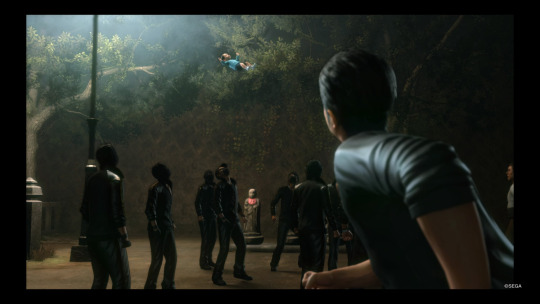
Then, of course, the narrative had to force Kiryu into trying to dig deeper into the ‘secret of Onomichi.’ Though Haruto’s life was not in any further danger, Kiryu’s endless curiosity to find out more served to elongate the story for a couple more hours - with a final confrontation that saw Kiryu shot three times and losing consciousness with Haruka bearing witness to his ‘final moments.’
Overall, the narrative was serviceable in that it allowed for a proper send-off to Kiryu Kazuma. After ten years of playing as the Dragon of Dojima, it was appropriate that Yakuza 6: A Song of Life made so many allusions to the previous titles - mostly in the character arcs. Unfortunately, since the title was solely focused on Kiryu, many of the other characters that fans fell in love with such as Daigo, Majima and Saejima took a backseat. I also disliked how even as the story focused on Haruka’s disappearance and her child, she remained in a coma for most of the chapters.
Unfortunately, Doctor Emoto and Komaki were absent. And I missed the silly revelations.
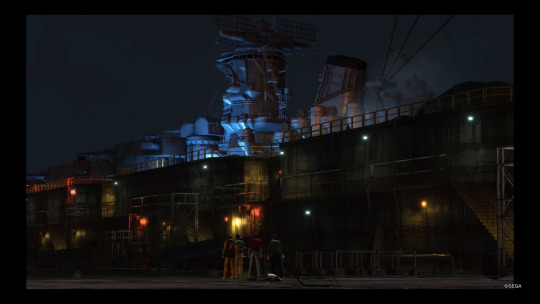
The underlying message of family and the bonds between people left a strong impression on me. After the previous game’s very strong hammer of DREAMS, I was relieved to see that Yakuza 6 kept it subtle and a little more tasteful. In fact, the comparisons between the Lo and Iwami family were excellent in highlighting the importance of understanding one’s children and maintaining a good relationship. I also liked how families were also not solely defined by blood ties. This was particularly evident in the adoptive family feel that came from the Hirose Family and Kiryu’s own experience of growing up as an orphan and seeing Kazama Shintaro as a father-figure.
Gripes aside, I enjoyed the new songs Yakuza 6: A Song of Life brought into the world. My favourite was ‘Today is a Diamond.’ My least, ‘Fork in the Road.’ But that was mostly due to the game not reading my inputs. After searching on Google, I discovered that I was not the sole person that had encountered the bug. I also very much liked the gym portions of the game and scouting out hidden cats around the cities.
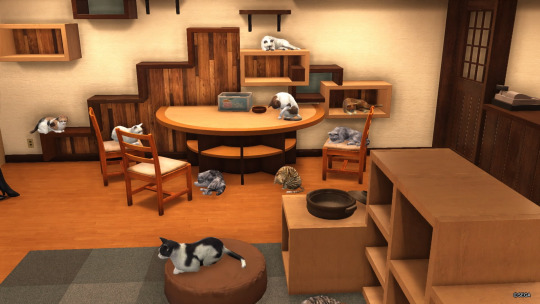
The one side activity that I was a little hesitant to repeat after completing it once was the live chat. Kudos to the translators that played an instrumental role in making some of the dialogue hilarious. Truth be told, however, it was the less savoury moments of the game and I am glad that I never discovered the photography section of Yakuza Kiwami 2.
What I also liked was the Chinese. Gone was the halting and incorrect pronunciations from Tanimura. The truth is, though, they probably actually hired Chinese actors to give the Saio Triad proper lines. While some of the translations were not exact, they still managed to accurately portray the meaning behind the words and phrases used.
The combat was also very reminiscent of Yakuza Kiwami 2 with experience points separated into strength, agility, spirit, technique and charisma. It was a little annoying that normal mobs could still reduce my health by such a large amount, but it did feel balanced. I doubt it would have been fair if I just blasted through every fight with just one punch. Although, that would have been entertaining to see.
Yakuza 6: A Song of Life proved to be a decent send-off for one of my favourite characters. Though there were stumbles along the way, it was a solid adventure that kept quite a bit of intrigue. As a writer, however, the plot did feel quite contrived in places, but I swept it aside.
Now with the pending release of a new generation of console, I’ll need to hurry if I want to remain on the front-lines of not-gaming-journalism. Of course, with Yakuza 7: Like a Dragon still on the horizon, it won’t be long before I’ll be back on the streets of Kamurocho. Then again, I still have Judgment to get through...
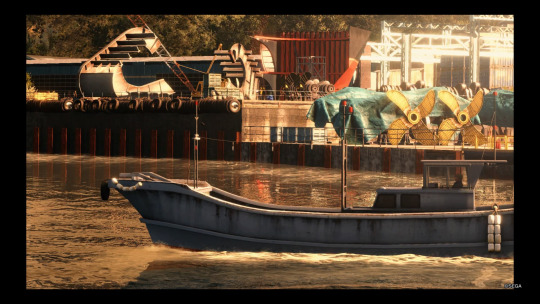
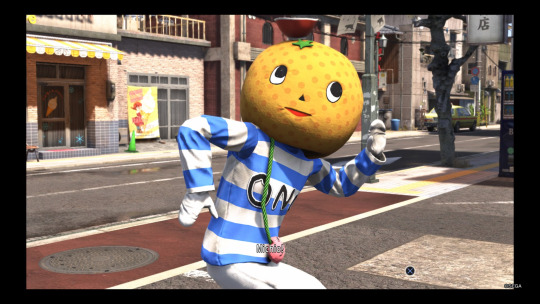
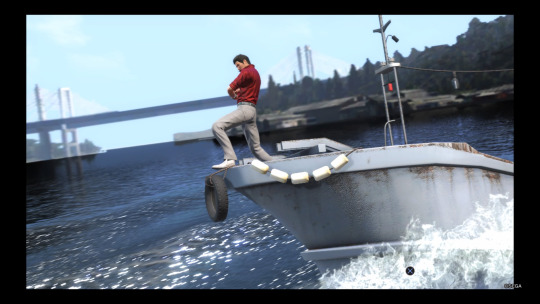
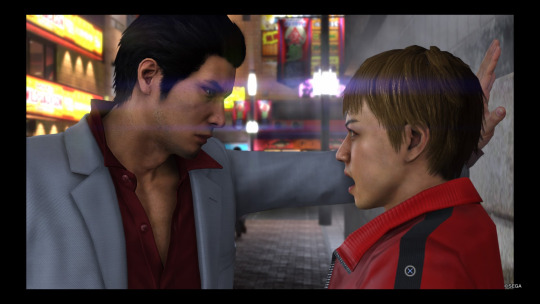
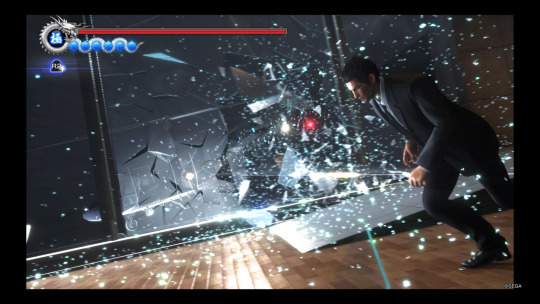
9 notes
·
View notes
Text
Torture in Fiction: Avatar the Last Airbender, The Boiling Rock
Avatar, the Last Airbender was an extremely popular cartoon series centred on a group of children trying to save their world.
It’s a world where some people can control and manipulate (‘bend’) the elements, water, earth, fire and air. The element a person controls depends on their heritage; whether they come from the Water Tribes, the Earth Kingdom, the Fire Nation or from the Air Nomads. Only the Avatar can master all four elements and they are tasked with keeping the world in balance.
The story begins a hundred years after the Avatar disappeared. The Fire Nation massacred the Air Nomads. They’re raiding the Water Tribes and occupying much of the Earth Kingdom.
In this war-torn world two Water Tribe teenagers discover the Avatar, the last surviving Air Nomad, frozen in ice. He’s twelve.
With its wonderful art, powerful storytelling and compelling characters Avatar left a lasting impression on a generation of fans. It spawned comic books, a live action movie (by all accounts terrible but it’s the thought that counts) and a second set of cartoons following the next Avatar.
But I’m rating the depiction and use of torture, not the cartoon itself. I’m trying to take into account realism (regardless of fantasy or sci fi elements), presence of any apologist arguments, stereotypes and the narrative treatment of victims and torturers.
And I’m concentrating on a two part episode from season 3 that barely involves the titular Avatar at all.
It starts with two of the Avatar’s companions sneaking away to break into a Fire Nation prison.
Sokka, who is from the Water Tribe and can’t control an element, feels guilty about the fact his father and girlfriend (Suki) have both been captured. Zuko, ex-prince of the Fire Nation and a firebender, feels guilty for opposing the Avatar for so long and elects to help Sokka.
So they take a balloon to the most secure prison in the Fire Nation: the Boiling Rock. It’s housed on an island in the middle of a volcano, surrounded by a boiling lake. Their balloon crash lands and with no way off the island they decide to disguise themselves as guards. They then find that Sokka’s father isn’t in the prison and think their efforts might have been wasted until they see Suki.
They witness brutality from the guards, with a guard goading a prisoner, Chit Sang, into firebending and then locking him ‘the cooler’ a torturous cold cell. Sokka manages to contact Suki but Zuko’s identity is discovered by the other guards in the process and Zuko is taken prisoner.
In their defence, this is more or less how all their plans go.
Sokka plans to use the cooler to escape. Chit Sang overhears the plot and demands to be let ‘in’ on the plan. They need to unbolt the cooler from its moorings so they can use it to float across the lake. Zuko hides some tools and he and Sang stage a fight.
Zuko is thrown in the cooler and unbolts it from its moorings.
They meet with the cooler but Sokka has second thoughts, especially as a new group of prisoners, including Sokka’s father is due to arrive soon. Sokka, Suki and Zuko elect to stay and try to rescue Sokka’s father. Sang tries to escape with a few of his friends.
The attempt fails and the Warden has Sang tortured. The Warden claims that Sang isn’t ‘smart enough’ to have thought of using the cooler and he must have had help. Eventually Sang tells the Warden that a person disguised as a guard helped him.
The Warden has all the ‘new’ guards, including Sokka, line up to identify the traitor. Sang picks out the guard who goaded him a few days ago.
I’m giving it 9/10
The Good
Sang’s way of resisting, picking out a loyal guard as the ‘traitor’, is brilliant. And it’s realistic. I’ve recommended this strategy to writers because it’s what a lot of Algerian fighters did during the Franco-Algerian war. Seeing it in a cartoon series from a decade before I began the blog brought a smile to my face.
The cooler is actually really similar to torturous punishments that were used in real prisons. In most places a hot cell seems to have been more common then a cold one but cramped cells kept at uncomfortable temperatures were regularly used to torture prisoners throughout the world.
Despite the existence of magic and different technologies the torture throughout this episode is all realistically low tech. We see guards threaten with fire and use it to intimidate but most of what they do seems to be beatings and torturous use of restraints.
There are suggestions throughout the story that torture and abuse are regular occurrences in the Boiling Rock. And the characters use that to cover up their actions. Sokka uses the ‘excuse’ that he wants to beat Zuko as a way to explain a guard hanging around a prisoner’s cell (and then uses a fake beating to pass Zuko details of their escape plan). Zuko uses procedure and the assumption guards should fear the prisoners as an excuse to keep his guard helmet on, covering his distinctive scar. The regular use of the cooler is what allows the group to unbolt it.
There’s no suggestion that the use of torture has made this prison safer for the guards, or made the prisoners more ‘cooperative’. If anything we see the opposite. There are regular fights. Sang can start a riot by shouting ‘RIOT’ to a crowd of prisoners. The prison is shown as dangerous and while the narrative never states this is because of torture it’s still avoiding a prominent apologist trope.
The guards, most prominently the Warden, seem to have very little information about what’s going on inside their prison. That’s consistent with the way torture effects investigation, cutting off sources of accurate information and destroying the ability to fact-check. The Warden doesn’t connect Suki to the escape attempt until she kidnaps him. Sang is only connected to it because he’s caught in the act. Zuko is only identified because he has a one in a million scar. Sokka spends days successfully masquerading as a guard and the only people who notice are prisoners.
Every incident of a guard threatening a prisoner seems to increase the prisoner’s resistance.
The torturers aren’t just positioned as ‘bad’, they’re shown as a mixture of incompetent and physically threatening which feels very true to life. The Warden is never positioned as some kind of action movie ‘badass’ or as a successful investigator. He’s a bully, pure and simple.
The Bad
I think on reflection these episodes do still underestimate the damage done by some tortures but they do this to a much smaller degree then most. The amount of time spent in the cooler is vaguely defined so it could be ‘safe’. But even short periods of time in freezing temperatures can be extremely dangerous. Sang is held upside down by guards, which can easily make victims pass out. Some of the physical effects are being glossed over here.
It’s difficult to say whether the series handles the impact on mental health well or not. Sang leaves the series shortly after these episodes and doesn’t have a speaking part again. Zuko appears to have lasting mental health problems, but they were present before and are narratively linked to his abusive family. The episode is also very close to the end of the series. There isn’t much space to look at the possible fall out of this one incident or for the characters to pause and consider what they’ve survived.
Miscellaneous
The cooler is the exception to the generally simplistic and low tech torture. But the cooler is presented as something specifically designed to limit fire magic. It’s unusual within the world and it’s not overly complicated in use or design. In this case it’s something I’m willing to accept because it’s consistent with the rest of the Avatar world and it (arguably) isn’t designed specifically for torture.
Overall
I have a huge soft spot for Avatar. For me it was a show that struck a very good tonal balance. It goes to a lot of very dark places but it also makes space for humour, friendship and fun.
I didn’t really want to look back at it, I was worried that it wouldn’t stand up as well now.
And I was pleasantly surprised. This episode toys with a lot of unrealistic tropes and then veers off in another, better direction.
The result is a story that’s both surprisingly realistic and full of genuinely unexpected twists.
Yes there are flaws and yes there are things they gloss over that I’d rather they didn’t. But this is still a show aimed at children; I’m not sure I’d want to see realistic depictions of the physical injuries torture causes here and some of the common symptoms (suicidal ideation, self harm-) are also not things I consider suitable for 6 year olds.
And it’s just as important to consider what they do get right.
Torture doesn’t work here. Not to make Sang give up information and more broadly it doesn’t keep the prisoners ‘controlled’. We’re shown a prison where guards ‘rough up’ prisoners for fun and torture is a routine punishment. And that prison is anything but effective. There are fights every day. The guards seem to fear for their lives, both around the prisoners and (occasionally) each other. Sang can start a riot with little more then a shout.
And both of these factors, are important to the plot.
Sang’s refusal isn’t just a twist, it creates a distraction for the Warden and helps the group escape. The prison violence isn’t just a background detail; it lets Sokka create excuses to communicate with Zuko and Suki, creates distractions and gets Zuko in position for their first escape attempt.
Torture and abuse are integral to this plot. But the story isn’t about them grinding people down or ‘breaking’ them, it’s about the holes it creates in organisations and how people exploit them. It’s an interesting use of torture because in many ways it isn’t about victims or torturers. The focus is always on the escape plot.
Torture is used to show how incompetent the guards and the Warden are. It’s used to highlight the resistance of prisoners.
It’s used to create a scenario where Sokka can win. Because if the guards at the Boiling Rock didn’t torture Sokka’s plans wouldn’t work. Trust and rapport between prisoners and guards could have revealed the plot at any point. Without regular use of the cooler the first escape attempt wouldn’t have been possible. And without the background brutality of the prison as a distraction Sokka wouldn’t have been able to communicate effectively with the people he was trying to rescue.
I’ve reviewed quite a few different pieces of media at this point. Some of them handle torture well and some, not so well. But I think this is the first time I’ve seen a story that used torture more or less entirely to show the bad guys as incompetent.
Which is a really brilliant way for a program aimed at children to undermine torturers without dismissing the harm they do.
Available on Wordpress.
Disclaimer
#tw torture#tw police brutality#torture in fiction#Avatar The Last Airbender#prisons#Prison Conditions#temperature torture#beatings#ways torture fails#torture and obedience#torture as interrogation#writing victims#writing torturers
205 notes
·
View notes
Text
"I Can Help You": the Build-Up to & Significance of 2x07's Villaneve Sex[ish] Scene
of COURSE i am going to write about this. before we get started though, i wanted to tell you all that while @villainever is still running, i will be mostly posting from my brand-new primary, @villanevest (this blog). so follow me for the same stupid memes, and check the "villanevest writes" tag if you're interested in more of these essays :D alright. now let's get going. killing eve is an extremely versatile show, and that's absolutely a credit to the writers being willing to follow the characters and their relationships, which allows the narrative to develop in a simultaneously organic and deeply compelling way. the greatest complexity of the series is also its primary draw: the dynamic between villanelle and eve, and its evolution. in this mini-essay, we're going to step through why -- I believe -- the construction of the sex scene as two separate but synchronised encounters is the best choice for killing eve right now, and how they've accelerated towards it since the pilot. from the beginning, villanelle and eve have been all about parallels. the first time we see villanelle in the ice-cream shop, she's spaced-out, bored, a vacant observer. the first time we see eve, she's asleep. these scenes are very deliberately presented to us, one after another: here, we have two women who feel displaced and alienated. neither of them is lonely, not exactly; they have people in their lives. what they lack is real, significant passion, something beyond the routine -- for villanelle, that "routine" is a lot more dramatic, certainly, but nonetheless, they're both numbed out, but until they meet each other, they're not really aware of that.

and then we have that moment in the hospital bathroom. it's not a coincidence that they're standing in front of a mirror, confronted with each other, and themselves. the composition of this visual directly implies that villanelle and eve are not just alike, but inherently complementary. in many ways, eve is a reflection of villanelle, and villanelle is a reflection of eve -- that is, opposite, but also identical. it's not until later that they really understand the importance of this two-second conversation, but it's the first breath of an obsession that will span continents and become literally life and death.
eve and villanelle discover each others' real identities at the same time, in a montage that draws focus again to these similarities between them and their experiences. but this is when their respective trajectories towards each other begin to progress separately and distinctly. the reason for this is that while villanelle is unquestionably the "cat" in this cat-and-mouse equation, at this point, she is also the one being chased, and eve is in pursuit. for most of the first season, villanelle has more information about and power over eve than vice-versa. for eve, who still has niko, she is seduced into the thrill of villanelle through that prescribed pursuit, and for a little while, that's enough for her. but villanelle doesn’t have such a set structure, and -- once she knows eve's name and eve's face -- almost immediately begins seeking out copies.

the first copy she constructs is herself, signing in as "eve polastri" while working in berlin. this is mostly a stunt to get eve's attention -- the first of many (amsterdam, anyone?) -- but it compounds on 1x01's thematic suggestion of their compatibility. the second copy, however, is perhaps the most blatant example of this: the woman from the tour group who sleeps with villanelle in 2x03. villanelle tells her she "loves her [American] accent", and gets her to take her hair down, and then goes on to actually call her eve.

villanelle's interest in superficially recreating eve fades fairly early, after eve gets out of the car to confront villanelle when villanelle is absolutely armed and definitely dangerous, for no apparent reason other than she wants to. villanelle scares her off with a warning shot (even though she could've very easily killed her at this point), but then doubles back the next episode, with the kitchen sequence from 1x05. villanelle says she "just wants to have dinner with [eve]", but i think this evening really exceeds her expectations. prior to this, she was very interested in eve, obviously, but after it, villanelle's infatuation becomes both more significant and more mature, and so does eve's. they've got chemistry when they're together, not just in the tension of being apart. BUT. so, so much of their story is spent apart. season one is a blur of glimpsed profiles and silhouettes, with only the bathroom, the kitchen, and finally villanelle's apartment providing them sites to briefly interact. at the end of 1x08, villanelle tells eve, "i masturbate about you a lot", but eve denies doing the same, which is probably true, in the sense that eve still believes she doesn’t (actively, at least) consider villanelle in a sexual way. then season two picks up, and they're apart again. only they're less apart than they were before. villanelle is right when she assures gabriel that eve stabbed her to "show [her] how much she cares about [her]". while it was barely premediated, and i don't think eve necessarily viewed it as a confession, it absolutely is; a confession of who she really is, and that that person is irrevocably linked to villanelle. in stabbing villanelle, eve puts the first truly irreversible crack in her façade of normality; she can't go back now, not all the way. the show doesn't really linger on this, though, because it's so obvious that eve doesn't WANT to go back. as reticent as i am to quote shakespeare, i will make an exception for this case, and take utterly out of context the line, "these violent delights have violent ends". for eve and villanelle, they need the violent delights and violent ends alike; sex and destruction and obsession and pain are integral to their characters. why? because i think such extreme emotions and acts break through that nothingness, that fugue villanelle talks about in 2x06.

and so the stab wound -- which villanelle proudly shows off to niko in 2x05 -- becomes something of a pact between them. to eve, it means villanelle affects her strongly enough to push her out of herself (except really, into herself), and to villanelle, it means eve can exist in her world, can challenge and surprise her, can interrupt the boredom with these bright spots of total involvement and utter fascination. and since we’ll be talking about parallels later -- in 2x02, villanelle caressing her wound in the bathtub is juxtaposed with eve tracing the heart carved into the train table. i think a “carved heart” is pretty much the wound is, too. from the pilot, villanelle and eve's relationship is an intricate dance of towards/away, together/apart. over the story, over each direct and indirect crossing of their paths, they become more towards, less away; more together, less apart. after season one, particularly 1x08, they have this permanent and indelible connection. but they're still consistently positioned as unable to reach one another. villanelle calls MI6, but they won't send her through to eve. eve arrives, but misses villanelle, and villanelle watches through the transparent but very real barrier of the car window, literally passing her by. then we have them separated by only a door in 2x03, and so many other instances of close-but-not quite.

it's worth bringing up at this juncture that while the villaneve plotline is happening, villanelle and eve each have their own individual character arcs, so while they keep glancing off each other and being torn apart in practice, they are steadily gravitating to a middle ground mentally and emotionally. i'll come back to this idea. in 2x05, we have yet another mirror/reflection, as the kitchen scene is revisited. having this reunion in the same setting as their first foregrounds how their relationship has changed. eve isn't anxious or fearful or on the back foot. she's the one who brings villanelle to her home, not the other way around, as it was last time. she reaches out to villanelle, she's confident enough to take the pills, and she doesn't hesitate before saying "yes" when villanelle asks if eve will give her everything she wants. the "yes" is easy, because whether eve is quite ready to admit it or not, what villanelle wants is what eve wants.
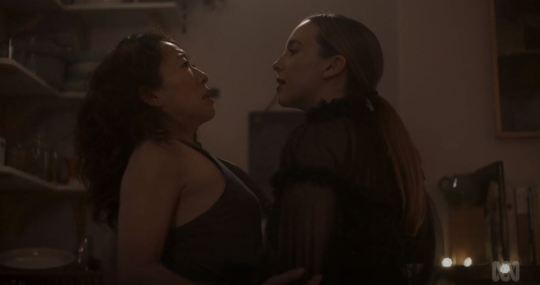
then villanelle helps eve with the ghost, and going forward, they're able to regularly collaborate, in their own off-beat fashion. so after 2x05, villanelle and eve are more or less settled as fixtures in their respective lives. there's still the dance, but there's no real chase. they've drawn abreast of one another. they've caught up. and this is where we circle back to the idea of copies. like i said, ever since eve has been real to villanelle, copies have been insufficient. but she still can't have eve, not entirely, and not exactly how she wants, so she escalates to proxies. in 2x06, villanelle mouths, "ready?" to eve, right before pushing amber's bodyguard in front of the truck. i'm not trying to imply that villanelle wants to push eve in front of a truck -- but as i said earlier, villanelle and eve intersect at this overlap of violent delights/violent ends. sex and death. she asks her Copy Eve in 2x03 "ready?" in just the same way. villanelle is demonstrating her faith in the depth of their connection in the extremity of her actions. she's proving to eve that they're for-better-or-worse now. she's not afraid that killing someone right in front of eve will drive her away; she knows it'll suck her in.

so what's the significance of the shift from copies to proxies? the copies were for villanelle -- a stand-in so that she could act out her desires. it's much more reflective of the "i / it": if someone looked like eve, then it was almost as if she had the real thing, right? but her affection for eve mutates into something much harder for her to manage, and "it" very quickly becomes "eve", and she can't produce a facsimile that can hold a candle to "me / eve". but the proxies aren't for villanelle, they're for eve. if villanelle's not allowed to touch eve yet, then she's using the proxies to say, "this is how much i care. this is how much i want you." and on a subliminal level at least, if not a conscious one, i think eve interprets it that as such. then, finally, we get to 2x07. we have a repetition of the phone call from 2x02, and just as carolyn played eve the recording of villanelle's MI6 call, villanelle listens to eve's voicemails. in this instance, they haven't missed each other. they're already together. the "9 missed calls, 3 voicemails" are an overture across space, but not across distance. this is about breaching an emotional gap, not a physical one. eve and villanelle are around each other often now, but it takes their being apart again to highlight just how much that proximity has allowed them to evolve.

in the restaurant in rome, we again have the visual of eve reaching out, villanelle catching her hand, and them meeting in the middle. which brings us to The Scene. it follows villanelle's crucial conversation with aaron (which I wrote about here), and that gives her a last little push. note: we have to remember that the bug that eve is listening through is only one way. while this might seem like a let-down, in that villanelle couldn't hear eve, i think it's actually really significant. because it shows how well villanelle knows eve, how much effort she puts into understanding her, and how easily she remembers things about her. in 2x06, eve was interjecting via the comms throughout almost the entirety of the aaron-villanelle-amber dinner conversation. that and the voicemails exemplify eve's involvement and propensity to hover, which is a result of her natural controlling tendencies, and how consumed she is with villanelle. so even though villanelle had no way of knowing that eve was listening, she knew anyway. she was sure with no feedback or guarantee. i love how they set this eve/hugo encounter up during previous episodes. it's something of a checkov's gun situation -- that is, the principle that if you introduce an idea (e.g. hugo's sexual interest in eve), then you need to bring it to fruition. what the writers did so well, though, is that we thought hugo had already served his purpose as a romantic/sexual option -- when he leans in to kiss eve in 2x04 and she doesn't lean away, we have evidence of how little commitment she still has to her marriage. but now he becomes eve's proxy.
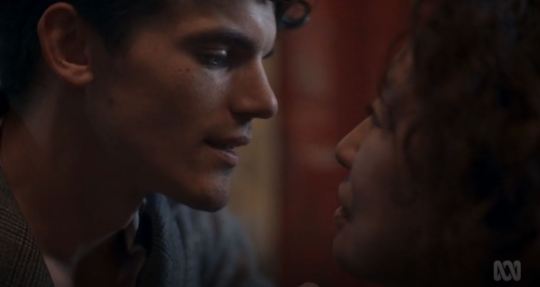
so why have eve hookup with hugo, and not villanelle? well, there are a lot of reasons. firstly, eve and villanelle having sex, or even kissing, would be a very significant development for the show, and have massive implications for the narrative. as a result, it would need a lot of build-up. the circumstances would need to be perfect. while eve is no longer shying from her attraction to villanelle, i think a mixture of adrenaline and tension would have to reach terminal velocity (probably by introducing an external stressor, like a fight or escape) for eve to actually step over that line. i don't think that, at this point, it's something she'd do with a perfectly clear head. she's too aware of how precarious the current balance is, and probably (quietly) also too afraid that giving in would mean villanelle's obsession would have closure, and thus die off. the episode just didn't have the minutes to generate that situation, and the plot didn't give an avenue for it.


secondly, it gives the writers a lot more room to play with the respective aftermaths. this way, they get to bring in
1) a fallout of some kind between hugo and eve. hugo's been very laissez-faire all season about sex, about boredom, etc., going on about how he understands why eve took the job at MI6, and her interest in villanelle. but until this point, it's been pretty much all fun and games, all james bond for hugo. and then he's going to have this moment where he realises he and eve AREN'T alike. he's a good-time guy, a bit selfish, and smart enough to need an entertaining career to keep stimulated. eve? it goes SO much further than that for eve. she really is on that sociopathy/psychopathy spectrum, and she needs this to feel awake, to feel anything. in their sex scene, their dynamic flickered into an "i / it" for eve, because hugo as a person didn't really matter at all. he's going to see the exact scope and depth of eve's obsession, and he'll realise she's gone beyond where he can follow. first niko, then hugo -- they're both ferrymen who tag along for a piece of eve's journey, but ultimately stay behind. they give an important reference point for the audience; they act as thresholds we see eve pass -- here, something niko can't condone; now, something hugo won't do.

2) the no-morning-after for villaneve. this doesn't relieve any of the sexual tension, it ratchets it up. like the stab wound, this connects them, but it doesn't resolve anything. the writers now have so many options: maybe a little awkwardness from eve (unlikely), intensifying chemistry (very likely), perhaps denial, or a desperation to get alone and take things to the next level. this didn't close a door, it opened several. they'll be able to draw villaneve out even more, and they'll neatly sidestep both audience expectation and television tradition. it's their game now.
here, hugo also has metaphorical signifiance -- he's the human cost of villaneve. over the course of the show, bodies, careers, and relationships have all imploded to get villaneve even just close enough to touch. villanelle and eve are using hugo directly just as they've indirectly used many others. note: symbolically, as well, villanelle is in eve's head. this feeds into the notion of obsession -- since the pilot, villanelle has consumed eve's thoughts, and now she's actually there. finally, above all, i believe this encounter perfectly fits the current phase of their relationship, and its evolution. it's the culmination of copies and proxies and distance. like i said, that apartness is just as critical to villaneve as the togetherness. they are as made of their negative space as they are of their lines and colours. and here they are: after pretending different people are each other, after being pressed together but stepping away again, after using others as mediums to express themselves, after being chased and caught, lost and found. here they are: together and apart at once.


not only is this thematic, it's romantic, in its own twisted way. fifteen episodes later, they are even sharper reflections of each other than they were when they met. they're in sync even with such little communication, and that stands in contrast to their additional relationships. niko and eve could be in the same room, talking directly, and be less connected. and that's kind of tragic -- that eve went through so much of her life NOT wide awake, that niko spent years with someone who wasn't really WITH him. villanelle and eve are all hot and cold, entirely comprised of extremes, because that's what they NEED to feel alive. villanelle says in 2x06, "like us, you mean". and that's exactly it: fundamentally, villanelle and eve are the same kind, and that's why they are so good together. it's how they stay so good apart.

will these violent delights have violent ends? unquestionably. but those ends will be new beginnings. eve won't go back to sleep. villanelle could never cope with being bored again. they'll push and pull, fight and fuck, get mad and get in deeper, inextricable. they'll keep chasing the delights and weathering the consequences, getting wilder and wilder until something happens that they can't shake off or walk away from. but that's how they are, that's how they're happy, and that's the only way they can be.
i hope all this held together! I had a lot of thoughts and it was hard to compress into one short essay, so I know it seems like a lot of disconnected threads rip. as always, reply/ask/message me with ideas/requests if you have something you want me to talk about! thank you to everyone who has commented nice things on my previous posts; it makes me want to write more and it’s nice to know someone’s reading :D
#ke#killing eve#villainever writes#villanevest writes#villanevest#killing eve analysis#ke analysis#ke essays#villanelle#villaneve#eve polastri#hugo ke#hugo killing eve#killing eve 2x07#ke 2x07#villanelle x eve#eve x villanelle#killing eve s2#killing eve season 2#commentary
206 notes
·
View notes
Text
Review: The Wedding Date
(Or: Maybe I should only read the first half of romance novels from now on?)
Book two of my year of romance was Jasmine Guillory’s The Wedding Date! I was excited about this one, since I had actually heard of it before I started reading romance, and also it has fake dating which is always gold. And I did enjoy it...up to a point. More on that below. :)
First, a summary: Alexa is chief of staff to the mayor of Berkeley. Drew is a pediatric surgeon in L.A. They get stuck in an elevator together when Drew is in San Francisco for his ex-girlfriend’s wedding to his med school classmate. Drew was supposed to have a date for the wedding, but she cancelled, and on a whim he asks Alexa to go with him instead as his pretend new girlfriend. She says yes, and they have a great time at the wedding and fall in bed afterward and have great sex. Drew secretly changes his flight to leave later in the day on Sunday, and they spend the day together. They’re both hesitant because they know the other person isn’t looking for anything real here—Alexa in particular knows Drew doesn’t do relationships—but they keep reaching out to each other, and Alexa goes down to L.A. to stay with Drew the next weekend. There’s a brief blip where she texts him to ask if he’s sleeping with other people and he makes a joke instead of answering seriously and she cancels their next weekend together; then he runs into her (very conveniently) when he’s back in SF for a conference and they fall into bed again. Then there’s a more serious blip where she meets a bunch of his exes who let it slip that he broke up with each of them around the two-month mark when it seemed to be going really well. Alexa gets upset, refuses to let Drew say anything about his intentions because she doesn’t want to be hurt, and sneaks out of his apartment in the middle of the night to fly home early. Drew realizes how much she means to him and flies up to L.A. to support her at a hearing for the at-risk-youth arts initiative she’s pushing for, and the two of them happily reconcile (and the initiative passes). He shows her the job offer he got from his mentor at a San Francisco hospital, and she tells him yes, she wants him to move here. There’s an epilogue a year later where he takes her back to the elevator where they met and proposes.
I feel like I spent my last review talking entirely about why the book fell apart in the middle for me. This book also fell apart in the middle, but I’m going to start with some things I liked/noted about it, so as to not spend ALL my time complaining about shortcomings. :)
Things I really liked:
Chemistry. Alexa and Drew are both super charming. Their back-and-forth was really enjoyable to read. It was a big part of what got me into the book: I wanted to see these two charming people grow to like each other. All the thing where they’re at the rehearsal dinner and wedding and enjoy touching each other were really nice to read.
Tropes. This one had such good tropes! Stuck in an elevator together! Fake dating! Anything with plausible deniability, where they’re acting like they really like each other but each one thinks it might not denote real interest, is just the most fun. This one gave up the plausible deniability aspect way sooner than I would have expected, but still: great tropes.
Race. Alexa is black and Drew is white. I am also white, so my perspective here is not informed by personal experience, but I really liked how this was handled. Alexa does experience some microaggressions and outright racism—not from Drew—in ways that felt realistic to me. Drew doesn’t try to explain away any of the racism, which made him seem like a good potential partner to her. There was also a thing where he failed to understand a thing in her past that was impacted by race, and when she explained it he listened and accepted his ignorance. She was still concerned that he’d like her less for having made him aware of his privilege, which felt like a very sad and real fear. Overall, it felt like racial dynamics were allowed to come into the text in nuanced and organic ways that kept Alexa from being a token POC. (Jasmine Guillory is a POC herself, so I’m not surprised that this is handled well, and there are probably other things about it that I as a white person didn’t even pick up.)
Body type. Alexa is curvy! She’s embarrassed about it! But Drew loves it! As someone who fills out the top of a cocktail dress pretty well myself, I really appreciated both sides of this: the realistic body issues from someone raised in a society that valorizes thinness, and the way the text kept affirming Drew’s attraction to her. There’s a racial component to this as well—lots of skinny blond girls in this book—but it was something I was able to identify with even from my different societal context.
Things I noted/was surprised by:
How soon they had sex. At some point I’ll stop being surprised by this in romance novels. I’ve read a lot of fake dating stories, and written some, and I would have expected the charade to go on a lot longer before they had actual sex that couldn’t at all be explained away by the fake dating scenario. The purported fakeness of it is the fun part! They both think the other one isn’t interested for real, while their own feelings continue to grow! Why would you cut that part short?? As soon as they kissed and admitted to each other that they wanted it for real, the tension dropped from a ten to about a two. This book got a decent amount of mileage out of that lower level of tension—more on that below—but it’s so surprising to me that it didn’t keep the much more interesting and trope-y tension going longer.
Consent and power dynamics. This book was super good about consent: Drew made sure to check in about what Alexa wanted, and it was played for sexual intensity, where he clearly got a kick out of hearing her say it. But it was very, very one-sided. There was no implication that Alexa needed to check in with Drew on what he wanted. This wasn’t a surprise, exactly, but it did stand out to me, since I don’t read a lot of het (and honestly this is a big part of why—I don’t want to encounter gendered power dynamics in my leisure reading). Consent felt like a thing the woman had to give the man. I’m not saying this is a problem, necessarily; just something I noticed.
Sex scenes. The sex scenes almost faded to black but not quite. Maybe they faded to gray? I felt like I knew pretty much what sex act they were doing and when, but they weren’t described in any real detail. It was an interesting compromise, like the book was trying to give us a clear sense of their sexual relationship without any real titillation. I wonder if this is a genre thing—I’m not sure this book was published strictly as romance—or if it’s just Guillory’s style.
Romcom careers. They’re chief of staff to the mayor of Berkeley and a pediatric surgeon. Those have GOT to be two squares on the romcom career bingo card. I’m teasing a little, but I think this kind of character background serves an important role: we have to know that they’re accomplished, valuable people, so that when they feel rejected or insecure we can revel in it—look, they feel like I once felt! But it’s unjustified and they’ll end up happy!—instead of actually questioning the characters’ worth. Fanfiction usually gets over this hurdle by writing about characters the readers already know and respect and love, or, in the case of RPF, writing about people who are for-real successful and famous. Romance novels have to introduce us to brand-new characters, and one of the easiest ways to make us feel sure that these characters are worthy of our respect and of the other character’s love is to give them prestigious and intellectually or creatively rigorous careers. I’ll be interested to see how many other instances of this I run across.
Two points of view. It strikes again! Do all romance novels include both points of view? I don’t hate it, necessarily—but it does decrease the overall tension. You don’t get caught up in one character’s desires as strongly when you’re seeing both POVs.
Immediate attraction. Another thing I should probably stop being surprised by. Both Alexa and Drew are very physically into each other as soon as they meet; he has trouble not looking at her breasts, and there are so many narrative references to her wanting his touch, wanting to move closer to him, etc. To be fair, I think I’m pretty far toward the “not attracted to complete strangers” side of the spectrum, so I might not be the best judge of this, but it did feel a little over the top. I suspect this was an attempt to make us really want these two to be together. I think it was trying too hard—a more genuine reserve would have been more compelling to me, where they like each other but don’t immediately want to jump each other. Also, they’re going to a wedding together as fake dates! You don’t have to try that hard to make us interested!
Food as comfort. This was such a strong recurring thread in this novel. Alexa has a sweet tooth, and Drew is always getting her doughnuts; they get a lot of very satisfying takeout. It gelled for me with the thing where a lot of the satisfaction in the novel came from the comfort of “oh, this person is touching me; oh, they like me back.” Comfort instead of angst.
Subplots. One of my questions in approaching this genre was whether romance novels needed to be more novel-like than fic—i.e. whether they needed to engage with a plot beyond the romance. This does have a very slight B plot (Alexa’s youth initiative, which is connected to her difficult relationship with her sister) but it’s VERY slight. The book has an even less prominent subplot about one of Drew’s patients who develops cancer. Alexa’s subplot resolves, whereas Drew’s is only backdrop. Drew’s in particular is used the way I’d use a subplot in fic: it’s included to provide an excuse for scenes with or about Alexa, or to affect Drew’s mood in ways that reflect or influence the romance plot. It serves the romance instead of being an independent plot in its own right.
Okay, so those are my observations. Time to dig into the thing where this book lost me in the middle—much like the last book I reviewed, but for entirely different reasons.
I’ve already talked about the drastic drop-off in tension after they slept together. That actually was not what lost me this time. This novel managed to build enough of a rapport between the two characters that I was invested in their relationship becoming real. To be clear, I would have preferred that the fake dating trope go on longer and create opportunities for actual longing. But this novel wasn’t so much about longing; it was about that delightful feeling when you like someone and you reach out tentatively and they meet you in the middle. It was the very, very gentle tension of, “Maybe we could hang out today?” “Sure!” over and over, as a relationship builds. It was fluff-adjacent tension. Super enjoyable, the way a warm bath is enjoyable. I wasn’t dying to get to the end or anything, but it was nice.
I did wonder, about halfway through, how the heck this book could possibly keep going like that. And it turned out it couldn’t. That was when it introduced: the Misunderstanding Plot.
Don’t get me wrong. I love a good misunderstanding plot. But they are hard to do well. They work best when they feel unforced and genuine, and don’t make either of the characters carry the idiot ball. Like, say, if Drew and Alexa hadn’t had enthusiastic sex where they talked about how much they wanted each other, and they were still under the impression that it was a fake relationship, it would be very easy to have the other character accidentally confirm that and drive a wedge between the two of them. Or if one of them was starting to think it WAS real, and then they overheard the other person confessing to someone else that it was totally fake. (Don’t mind me; just thinking about ways I might write it.)
The problem with this one was that they were basically just dating at this point, so in order for drama to arise, the characters had to act badly in ways that felt forced and off-putting. They’d known each other for a week and a half; things had been happy and a little giddy and chill between them so far. Then Alexa texts in the middle of the workday to ask if Drew is sleeping with anyone else. (Because that is the perfect way to initiate an important relationship conversation, obviously.) He makes a joke, because he is clearly also very good at this, and they don’t speak to each other for a week and a half.
Guess which one of them this makes me like more? That’s right! Neither!!
Look. I like characters who are stupid about their own feelings and blind to other people’s. But I also like characters who, when they know about the other person’s feelings, are very, very considerate of them. Drew was not—and Alexa compounded the problem by being confrontational with the question and then abruptly pulling back as soon as she didn’t get the magical easy answer. In short, it made me think that they were bad for each other.
They recover from the texting thing when they just so happen to run into each other (I mean, I can’t throw stones, I’ll buy the coincidence) and are happy to see each other, and apologize, and everything’s fine. But by this point the novel had lost me. I had been enjoying the happy dance of “Does s/he like me? Ooh, s/he does!” but only so long as it lasted. They didn’t have a strong enough core after a week and a half to get through the badness of those texts. They were happy again, but I wasn’t invested. I was mostly reading so I could write this review.
Then, fascinatingly, the book won me back.
It was a very specific passage that did it. On page 190 of the paperback, Alexa talks in the narration about how she wouldn’t admit this to anyone other than herself, but ever since that first weekend with Drew, she’d imagined him in bed with her every night as she fell asleep. And I was sold. I mean, it was still very gentle tension. But! A thing the character wanted that she wasn’t getting! I could be into this again!
And then...well, this is already super long, so I won’t go into all the details of the misunderstanding that ended the book. It had a lot in common with the text message fiasco: Alexa felt insecure, got upset that Drew might not be into her, and refused to engage with him about whether that was true. (Okay, it was actually more egregious than the texts, in that she wouldn’t let him speak.) Her getting upset made sense, but her refusing to let him speak when he was clearly trying to felt SO forced.
The funny thing is, there was actually a seed of potential real conflict there: Drew hadn’t really admitted to himself that he wanted a long-term thing with her. He could have told her that. He could have done anything, really, to indicate that and create a real conflict. (Also tricky to handle without him coming off as not actually interested—but doable, I think.) As it was, he didn’t call her his girlfriend at a party—which, it had been like a month, and they hadn’t discussed it privately, so it’s totally appropriate not to throw the term around in public yet!—and...that’s it. Everything else was just her fears, and the very cowardly way she handled them. I guess that’s relatable? But it felt so engineered. It didn’t so much make me dislike her as make me annoyed with the text for twisting her response so that they couldn’t have the very short conversation that would have cleared everything up.
In fairness to Guillory, a friend who’s read the whole series tells me she does better with misunderstanding plots later. But I’m really, really excited to read a romance plot that doesn’t lose me halfway through.
Next up is Red, White, and Royal Blue. I’ve been told this was basically written for me, so I’m hopeful. Fingers crossed it sticks the landing!
9 notes
·
View notes
Text
5 Reasons You Should Be Watching Legacies

October is, just objectively, the best month of the year. Exhibit A: Golden autumn leaves. Exhibit B: All things apple. Exhibit C: This gif. Exhibit D: Witches. Like, it’s just science.
Around these parts, though, the best best thing about October is, of course, the television. Yes, I’m talking spooky, kooky Halloween specials—love a good Halloween special—but also I’m talking fall premieres. Specifically, I’m talking The CW’s fall premieres, which have been landing in mid-October (later than most other broadcast networks) since at least the first season of Arrow.
This fall, the teen-skewing network’s biggest draws are, arguably, the series debuts of Batwoman (October 6th) and Nancy Drew (October 9th), and the final season bows of Arrow (October 15th) and Supernatural (October 10th). But while I’m professionally interested in seeing how all those premieres play out, the CW joint I’m most personally invested in getting back on my screen (also October 10th!) is Julie Plec’s supernatural boarding school double-spin-off teen drama series, Legacies.
Friends—you should be watching Legacies. I know there’s a lot of television out there, but really and truly, if you like television that likes being television (more on that in a minute), Legacies is absolutely worth tuning in to. Why? Well, let me just count the reasons:
1. You don’t have to do any television homework to join the fun.
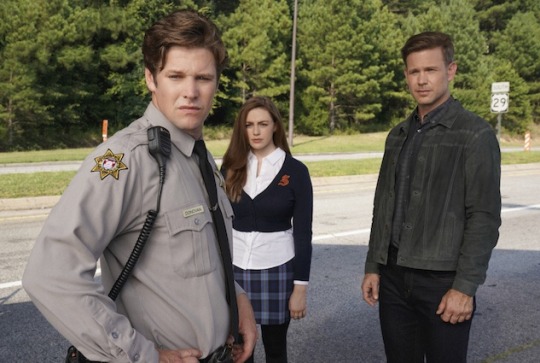
Yes, TECHNICALLY Legacies is a hybrid spin-off of two different long-running Julie Plec series, The Vampire Diaries (eight seasons) and The Originals (five), and sure, technically it was in those series that the mythology driving the character arcs/motivations of Legacies’ most central leads, Hope Mikaelson (Danielle Rose Russell) and Alaric Saltzman (Matthew Davis), was developed. After spending a cumulative thirteen seasons not just telling stories on television, but telling stories on television from this specific world, Plec’s ability to set efficient narrative groundwork under fast-moving vampire feet is nothing if not masterful. Genuinely, aside from a few single-episode cameos of side characters from Hope and Alaric’s TVD/Originals past, the only thing you need to watch to make sense of Legacies is this official promo for the first season:
youtube
…and honestly, most of that soliloquy, plus much more, is folded into the cold open of the series premiere, “This is the Part Where You Run,” which uses new lead Landon Kirby (Aria Shahghasemi) as audience avatar as he gets introduced to this particular supernatural world for the first time.
2. Two words: Julie. Plec.
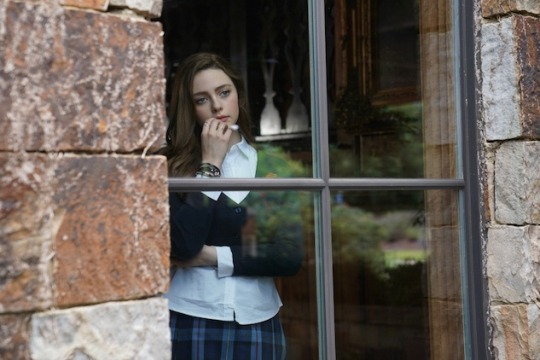
That said, if you are familiar with Legacies’ double, er, legacy, you’ll get a kick out of how precisely Plec has taken her signature whip-fast storytelling and fitted it to a breezier, more “teen” setting, and how deftly she manages to weave in both key characters and core emotional beats from both her previous series.
The most obvious example of all of this is Matthew Davis’ Alaric Saltzman, who became such a fan favorite during his time as vengeful-vampire-hunter-turned-loyal-teen-vampire guardian-turned-rogue-vampire’s-best-friend on The Vampire Diaries that not only did Plec resurrect him from the (very truly) dead to keep Damon Salvatore (Ian Somerhalder) on the straight and narrow, but she then brought him on as co-lead of this series to do the same for every supernatural teen in the contiguous United States. Now, as both father to a pair of Gemini twin witches (Kaylee Bryant and Jenny Boyd) and mentor/father-figure to Hope, the teen witch-vampire-werewolf tribrid with a hero complex, Alaric gets to flex all the emotional muscles TVD fans know and love. Plus, as the Salvatore School’s headmaster, he also gets to take charge of the dramatic supernatural research and heroic (and/or chaotic) supernatural missions that are key to a Plec series’ fast-paced success. Beyond all of that, though, in positioning him as the central human adult foil to a whole pile of supernatural teen protagonists, Plec has also found a way to let him be funny, bringing a uniquely fun dynamic to the fast-moving monster drama of the TVD universe that hasn’t always gotten such pride of place.
In other words: Julie Plec, still running wild supernatural stories turned up way past 11.
3. Three words: Supernatural. Boarding. School.

One more time, in case that didn’t sink it: Supernatural. Boarding. School.
I really shouldn’t have to elaborate on this, but Legacies is set at the Salvatore Boarding School for the Young and Gifted, which is the school for young witches, werewolves, vampires, and Hope that was funded by Hope’s (dead) dad and is located at/on the Salvatore family’s Virginia estate, just outside Mystic Falls. All the moody opulence of Damon and Stefan’s TVD homebase, all the zingy, angsty tropes of great Teen TV.
More than just being a fun setting, though, the Salvatore School gives Legacies a chance to sprawl out and complicate the consequences of being a teenager consigned to eternity as part of the supernatural world. These consequences are still very real and very serious in Legacies, but while The Vampire Diaries mined dramatic tension from supernatural teens (or at least vampires who looked superficially like teens) living in dangerous proximity to human teens, its kid sibling series looks inside for its tension. The teens at the story’s core need, first and foremost, to find a way to come to terms with their own inhumanity, and what it means to be good as they define it. And honestly, after so many years of TVD stories focused on the former, spending time with a bunch of super compelling, super different supernatural kids working through the latter is just a treat.
4. A diverse cast and diverse stories

This leads directly into a key update to the TVD legacy: With such a sprawling cast of teen characters brought to the Salvatore School from all walks of life and corners of the country, Legacies gets to improve on one of the original series’ greatest weaknesses: A lack of diversity. While both Alaric and the three central female characters of Legacies—all carried over from the previous series—are still white, the characters that round out the rest of the new series’ core cast are not. On the adult side, Alaric is joined by faculty members Dorian Williams (Demetrius Bridges) and Emma Tig (Karen David), while on the teen side, Hope, Josie and Lizzie are joined by softie vampire MG (Quincy Fouse), activist vampire Kaleb (Chris Lee), reluctant alpha werewolf Rafael (Peyton “Alex” Smith), ex-alpha werewolf Jed (Ben Levin), bad girl with Penelope (Lulu Antariksa), and the audience avatar/mystery box supernatural mentioned above, Landon Kirby (Aria Shahghasemi). Nor is racial diversity the only benchmark hit with this large cast. In terms of queer representation, Josie is bi, with Penelope her ex/possible future girlfriend; in terms of class representation, Rafael and Landon are foster brothers who both have dark histories with the system.
Importantly, none of these measures of diversity are included just for show. Each character’s identity and background are as key to who they are within the heightened emotional context of the boarding school as their individual supernatural abilities. Kaleb’s experience as a young black man (and vampire) is markedly different from MG’s, which is markedly different from Dorian’s (who, to be fair, is also not a vampire). Josie and Penelope’s relationship is informed by their strengths (and weaknesses) as witches, and further informs how they each approach solving problems both social and magical. Landon and Rafael’s history, as thrown away kids whose only shelter was each other, drives every decision they make. That diverse identities should inform characters in these ways isn’t a surprise; that Legacies is embracing them all now after so many seasons of its parent series falling short is, if not surprising, then at least worth taking note of.
5. Finally: Legacies totally knows it’s a TV show.
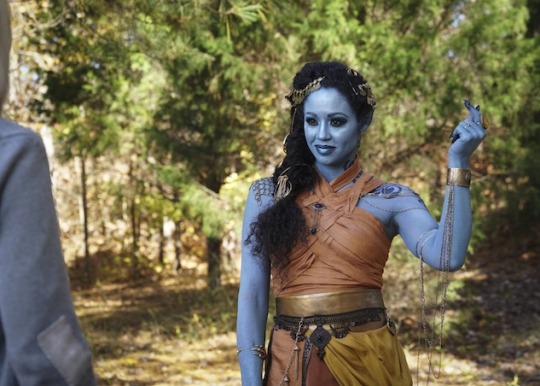
This seems self-evident, but as pop culture critic Grace Robertson so sharply observed earlier this year in her essay “Let TV Be TV” (like, literally; the heading above is a direct quote), the best trick Legacies pulls isn’t even a trick. It’s just being good at being entertaining, episodic television.

In an era where a TV show can be anything from thirteen thirty-minute episodes (pick literally any prestige comedy) to dozens upon dozens of bite-sized Facebook posts (SKAM Austin) to an 18-hour art film (Twin Peaks: The Return), defining just what counts as television is practically a professional sport. Well, it’s a sport Legacies isn’t interested in playing. With both its new-to-the-TVD-verse Monster of the Week mode of storytelling and the Salvatore School as its comfortable, “fixed point” setting, Plec is even better at framing episodic stories than she was in her already rollicking previous series. In a television landscape so full of cinematic innovation, the freedom this old school “status quo” television model gives Legacies is, as Robertson notes, a huge relief.
So, yes: Legacies knows it’s a TV show, and it knows it’s a fun one. With the short first season currently streaming on Netflix, there is literally no better time to jump on the Legacies bandwagon than now. And I know it’s one I can’t wait to have back in my weekly rotation. All hail October.
Legacies Season Two premieres Thursday, October 10th on The CW.
#Legacies#TheOriginals#TheVampireDiaries#TVD#HopeMikaelson#LizzieSaltzman#JosieSaltzman#LandonKirby#AlaricSaltzman#MG#RafaelWaithe#LegaciesSeason2#Malivore#Tribrid#GeminiCoven#TheMerge#KaiParker#CarolineForbes#JoLaughlin#NewOrleans#FreyaMikaelson#MysticFalls#SalvatoreSchool#JuliePlec#TheCW
17 notes
·
View notes
Text
Another week, another brand-new episode of Psycho Pass. I’m going to hold back and be all mysterious and stuff. Because that’s how I do. I definitely don’t blurt out exactly how I feel about a show in the very first line of every post and then there’s no point in reading the rest. Nuh-huh. No siree. I gots some restraint! Who do you take me for! So instead, Matt, how are you enjoying season 3 so far. It may just be 3 episodes in but as they are double length, it’s now longer than most movies!
Oh, so does that mean it’s my turn to blurt out my thoughts in a single sentence? Okay, um, err, this show is still as consistently excellent as I thought it was based on the previous two episodes! Oh no, I hope I’ll have something to write for the rest of the review now!
Is that so? Fascinating. I can see how you would think and/or feel that way! (I write my part first… I have no clue what Matt said at this point…
So let’s get right into it. First I just a few general comments on my part. I enjoy high stakes corruption stories and although that’s also what season 1 was, the fact that this allows us to look into the public face of Sybil a bit more, through the device of gubernatorial elections is a great angle in my opinion. Diving into what has to be extremely complex and unique politics of a Sybil controlled society has so much potential.
I had to look up what “gubernatorial” meant (we don’t have anything like that in Australia, so forgive my ignorance), but yes I think politics and the world of ‘Psycho Pass’ is a perfect fit.
I mean what powers do politicians even hold in such circumstances. Are elections largely a population suppression tactics. Something to keep the masses happy? If so, why are they so incredibly high stakes. Seems ridiculous to be going through all this for what amounts to a reality show (which might explain why both candidates are entertainers). So much potential!
What do you think?
I mean, if I know anything about politics and people its that ambitious people will always be ambitious and wanting to be ‘the best’ regardless of the world they live in–so even if politics amount to nothing more than a popularity contest without any real power or ability to change anything outside of Sybil’s system–people are still going to strive for that, people are going to kill for that even. We’ve seen time and time again in the real world that people do extreme things to get what they want, even if to ‘outsiders’ their goals seem ridiculous or pointless.
Yakusuji really surprised me as a character this week. For a second there I thought they were going with a “bad guy is bad” sort of characterization but then it all took a very sharp right turn! I still don’t know if his character is sincere or if it’s all a big act. Either way, I didn’t expect it and I like it! Maybe it’s my suspicious nature that leads me to think he’s less than sincere but Psycho Pass did teach me not to trust anyone!
He’s definitely an interesting character but the way his character ties into Enforcer Todoroki’s subplot makes for a compelling bit of character development. As for whether he’s ‘on the level’ I don’t buy it…
I did find the assault scene a bit blunt. Not as in too brutal (mind you I thought it was hilarious that someone could kick a skull in so hard as to actually make it explode!) but just a little too straight forward. At least that’s what I thought as I was watching it. In hindsight though, if this was a political machination and not just the random terrorist attack they are making it out to be on the surface, then this type of direct and flamboyant assault is exactly what would be the most effective!
Yeah I took it to be that they were being intentionally flashy, down to the attackers wearing the same clothes, I found it to be a very intimidating scene.
How does anyone in this universe manage to keep their hue clear? I was only watching those little holo assistant thingies pop up for a few minutes (like the old Clippy office assistant) and I already felt my urge to murder rise. I wouldn’t last a day if I had to deal with those things and keep my thoughts in check!
I loved the idea of someone being physically assaulted and then a little pop-up comes up warning them that they were receiving injuries in-line with someone being assaulted, it’s that kind of AI assistant mentality that makes me hate AI assistants like ‘Alexa’ and ‘Siri’ all the more (but that’s a rant for another day).
As our heroes were chasing the attackers down, we got some surprising bit of universe building and musing on the dual nature of justice and law. One of my very favourite lines from the first season was said in a similar context. As Akane was chasing down criminals she said something to the effect that there’s a misconception that laws are there to protect people but it’s really up to people to protect the laws. I love that idea. It really epitomized Akane’s character and the fact that that’s what’s going through her mind in a high-pressure situation was just perfect.
We got something similar this week with Arata capping off a chase explaining that even in a Sybil controlled society it is imperative to exercise human judgement “that’s why dominators have triggers”. It’s a great line! And one that solidifies Arata’s devotion to ideals rather than establishments.
I’m glad you brought it up, that line really stood out to me too, the importance of the human aspect in an (at times) inhumane system.
Matt, you mentioned last week that you felt the writers of Psycho Pass season 3 had gotten around to reading old US news, it seems that they’ve moved on to more recent fare as the general depiction of the mudslinging politics does seem very familiar to what has been happening not too far south from my own home in the past few years!
Immigration’s a tricky thing, ain’t it?
Although, aside from the winky topical references, it does make a lot of sense that a society as portrayed in Psycho Pass would be particularly xenophobic. To be honest, I was really surprised they even had large scale immigration. I figured the country would have been largely sealed off!
So far, the themes of racial/cultural tension are handled a little naively and way too simplified for my tastes. However, I do realize that with everything going on in this narrative, you got to take some shortcuts.
I suppose there’s still time for a more nuanced discussion on immigration from this show, I imagine someone like you Irina, an immigrant yourself, would have a lot more to say on the subject than most people?
What did you think of Haruki Enomyia? I’m asking cause I have no clue what to make of them.
Difficult to say, for a second I thought they might be setting them up as a bigger villain for this story but I think they’re probably going to end up just another pawn in the bigger game being played. I think they were more just here to give us an idea of what kind of life Kazumichi had in the slums before joining the force. Though I think him just walking around the town with Arata did that well enough.
Am I the only one who noticed all the food in this episode? Maybe I was just hungry, but everything looked delicious!
C’mon Irina, all anime food looks delicious!
Ok back to more serious stuff, we got some very decent character-building backstory for both Kei and Arata. Now normally, this would not be my thing. It was delivered in straight exposition and boy oh boy was it all tragic! Taken independently, both of their backgrounds would have had me gently rolling my eyes and moving on without a second thought. Oh my, an anime protag with a tragic backstory! But it’s in how these stories intertwine to create such a bizarre picture of their relationship that brings the whole thing to a higher level.
It’s kind of interesting that they chose to more or less have our entire supporting cast learn this complicated backstory at the same time via the expositional method you mentioned. On the one hand I guess it helps to have everyone on the same page with their history but it makes me wonder if it was done for a more specific reason. Like one of the Enforcers using this information against our dynamic duo or the opposite and it puts more faith in them and brings closer as a team–who can say for sure?
In fact, the peculiar dynamic between Kei and Arata is truly fascinating and so far, a strong point of the season for me.
Agreed.
A few little random thoughts:
I quite like both the OP and ED. I like the visuals in the OP better, in fact, I like them a lot, but I prefer the ED song!
The interiors are really beautiful this season. I’m not so taken by the architecture, but room designs consistently catch my eye.
Also, I didn’t know where to fit it in the review, but I liked the statement that acting weak releases cortisol making you feel more relaxed. The behavioural neuroscience angle is one I like a lot and I hope they develop it more as Psycho Pass is the perfect universe to explore this in.
I thought it was interesting–if briefly mentioned–but I have to wonder if it was just the writer showing off some fancy things he learned on wikipedia and wanting to put it into the show (okay that was a bit catty of me, apologies to the writer of Psycho Pass).
Oh I guess I should finally admit it. I really liked this episode. More than the last. So far, I think the writing may be a touch weaker than I had hoped. There’s a lot of slightly clumsy exposition. But I’m also starting to see the foundations of a potentially fascinating story with some very intriguing dynamics. I’m excited. When the episode ended I was both surprised by how quickly it had gone by and a little bummed I couldn’t watch the next one right away!
I have to agree (we seem to agreeing a lot this time!) our new characters feel like they’re living up to the potential of this show’s world while adding interesting things to it too. Political corruption, a shadow organisation called ‘Bifrost’ pulling the strings (cool name by the way) plus all the internal machinations at the various levels of law enforcement and interpersonal relationships too makes for a rich and compelling tapestry. If you’re a person who adheres to the 3 episode rule and you haven’t given this show a chance yet then 3 excellent episodes in a row should be proof enough that Psycho Pass is back and firing on all cylinders!
Psycho Pass s3 ep3 – Tensions Flare Another week, another brand-new episode of Psycho Pass. I’m going to hold back and be all mysterious and stuff.
10 notes
·
View notes
Text
5 Ways in which bad writing was the real villain of GOT 8x05
I know tempers are running high right now but after lying awake for hours being angry about the way this season is going I’ve decided to try and rationalize just what it was about this episode that left such a bitter taste in everyone’s mouths. Did I think there were obvious elements of misogyny and racism at play? Definitely. But pointing that out without concrete proof isn’t going to win any arguments and none of it would have happened if it weren’t for a total disregard for the basic principles of good storytelling so let’s dig in:
1. Hitchcock’s Law of Suspense? What’s that?
In creating his high-intensity thrillers (on very limited budgets and with minimal special effects compared to today’s media) Alfred Hitchcock often referenced a scene in which a bomb goes off under a table while two characters are talking. He said it was better to get 15 minutes of suspense rather than 15 seconds of surprise so rather than simply let the bomb explode for shock value why not show the bomb being planted, allow the characters to carry on with their conversation as the audience is literally yelling at them that a bomb is about to go off then you could have someone defuse it at the last minute.
8x05 threw this out of the window in multiple ways but if you want an example of a time when Game of thrones used it to amazing effect look no further than season 6 and the blowing up of the great sept of Baelor. The music was textbook suspense building, the reactions of the characters to Cersei not being present at her trial are a genius way of building tension, the futility of lancel’s attempt to stop the wildfire exploding and then the actual climax of the scene make it one of the most memorable uses of suspense in modern television. Did we get that in this episode? Nope, we got lots of people being burned alive needlessly, several huge anti-climaxes and an over-use if CGI.
On a lesser not Jaime’s decision to return to King’s Landing was a major wasted opportunity in the suspense stakes, had he made his motives less clear and allowed the audience to wonder whether he was returning to King’s Landing to kill Cersei or save her his final scenes would have been much more compelling.
2. Show, don’t tell.
Part of the reason everyone seemed so out-of-character this episode was because the writers seem to have forgotten the basic principle that instead of going round telling everyone that a character has certain qualities/motivations you should demonstrate said qualities to the viewer to win them around to to that character’s perspective here are a few examples:
When Tyrion is initially named hand of the king the writers want you to think he’s the cleverest character so rather than have other characters be like “he’s the cleverest character” they have him outsmart the likes of varys, littlefinger and maester pycelle to find out which one of them was informing on him to Cersei, it was a brilliantly well-executed scene and set him up as one of the smartest characters on the show. A+
When Tyrion is named hand of the queen he makes a lot of stupid decisions, we’re told that a lot of this stems from underestimating his own family yet previous seasons establish he and Cersei as having one of the most intriguing complex sibling relationships on the show by allowing the events of the plot to foster constant mistrust between them. We’re constantly told Tyrion is still one of the cleverest characters but without a hidden agenda none of his current actions make any sense in relation to those qualities. D-
3. Proper Characterization is a marathon, not a sprint.
The last thing viewers/readers who have spent years with a character, understanding their motivations, qualities and back-story should feel is that the writer’s weren’t sure what to do with that character half way through the episode but that’s exactly how many viewers felt upon watching Jon and Danaerys’ arcs unfold in 8x05. Neither were given any build-up or foreshadowing to the decisions they made and it Simultaneously ruined the 7-season character arcs of two fan-favorites.
Jon’s been stripped of many of his more interesting qualities as a leader this season and in attempts to make him look like a loyal, brave hero all the writers have done is make him look weak. If they were setting him up to have to kill Danaerys and save the realm next episode they did an extremely poor job of it, mainly because the one scene they shared together this episode was such a confused mess.
If the writers’ wanted Jon to be a cold and calculating political leader he occasionally appears in the books they could have made him work a lot harder at convincing Danaerys that he loves her and would do anything for her, probably going a lot further than one kind of awkward kiss.
And if they wanted to show him genuinely being in love with her and retaining some semblance of humanity his response should have been more like “Yes I love you but we’re related and it’s weird and I’m still coming to terms with the fact my entire identity for 7 seasons has been a lie so could you maybe give me some space to process that.”
Somehow the destruction of Danaerys entire arc managed to be even worse as they’ve spent all this time building her up as a protector of the innocent and a fair ruler. They abandoned the kind of nuanced and considered writing that found her struggling to rule in Mereen (which happened to be one of her most interesting story-lines) in favor of pure shock-tactics.
There were many better ways in which the destruction of king’s landing could have played out with very similar consequences. The bell-ringing could have been a ploy to put her armies at ease before more Lannister soldiers appeared from out of nowhere and start slaughtering them so she has no choice but to attack, the wildfire could have been a major plot-device rather than an afterthought and the burning of the red-keep could have triggered much larger explosions all over the city. So it wasn’t only out-of-character, it was badly timed and made no actual sense in relation to the plot.
4. Don’t invalidate your own work
As a writer the last thing you should to is completely go back on your own plot developments but when a lot of viewers are asking “So why didn’t Danaerys just take Olenna’s advice and burn King’s Landing in season 7, then she’d still have three dragons and most of her army” then you’ve messed up big-time.
Killing off fan-favorites, sending characters down dark paths, regressing on certain aspects of character-development and reminding people of the horrors of being a civilian caught up in a conflict are all valid means of storytelling and can be used very effectively given the proper time and foreshadowing to see it through but when writing one scene badly makes almost everything else you’ve written seem futile and pointless not only are you failing as a writer your failing those who have invested considerable time and energy into those characters and their story-lines/redemption arcs/perspectives.
Which brings us onto my final point
5. Look at your story in a wider context
Like it or not, no narrative exists in isolation and no matter how fantastical a setting it will always be the characters, their emotions and the way they relate to each other that viewers and readers are captivated by. Many of a character’s actions may become horribly dated as times (and attitudes) change, one need only watch any film about a young working class man made between 1960 and 1987 to see that treating female characters like crap used to be the norm even for well-liked protagonists but with this in mind writers still need to be conscious of the way their story will be received.
If Game of Thrones was ever supposed to be about disrupting an oppressive feudal order, giving voice to those who were robbed of it and dismantling the power structures that allowed might and ruthlessness to triumph over intelligence and common decency then it failed miserably.
I’d be lying if I said I didn’t read a lot into these things but it seemed pretty obvious that the message was one of utter futility; never try to escape a toxic relationship, you’ll just end up going back and it’ll be the death of you, never try to be better than your insane family, you’ll just end up turning into them and if you’re born a slave don’t try to be anything else because you’ll probably still die in chains. And that’s before you even dig into how much the show is wrecking Sansa’s character arc by implying that she should be grateful for all the horrible things which happened to her rather having her consciously decide to do things differently to those who tormented her.
So those were the biggies. There were countless other examples of sloppy writing (Qyburns scorpions being able to take down a dragon from behind and island on a boat but not being able to hit one and point blank range, yara being robbed of the chance to kill her uncle, Varys not even knowing Jon but being determined that even though all Targaryans have the potential to be nuts he’d be the better ruler) but I digress, if I’ve missed anything major message me or leave me a comment, I’m sorry that this has been such a long post but I’ve invested too much of my life into both the show and the books to allow this mess to pass for acceptable writing.
22 notes
·
View notes